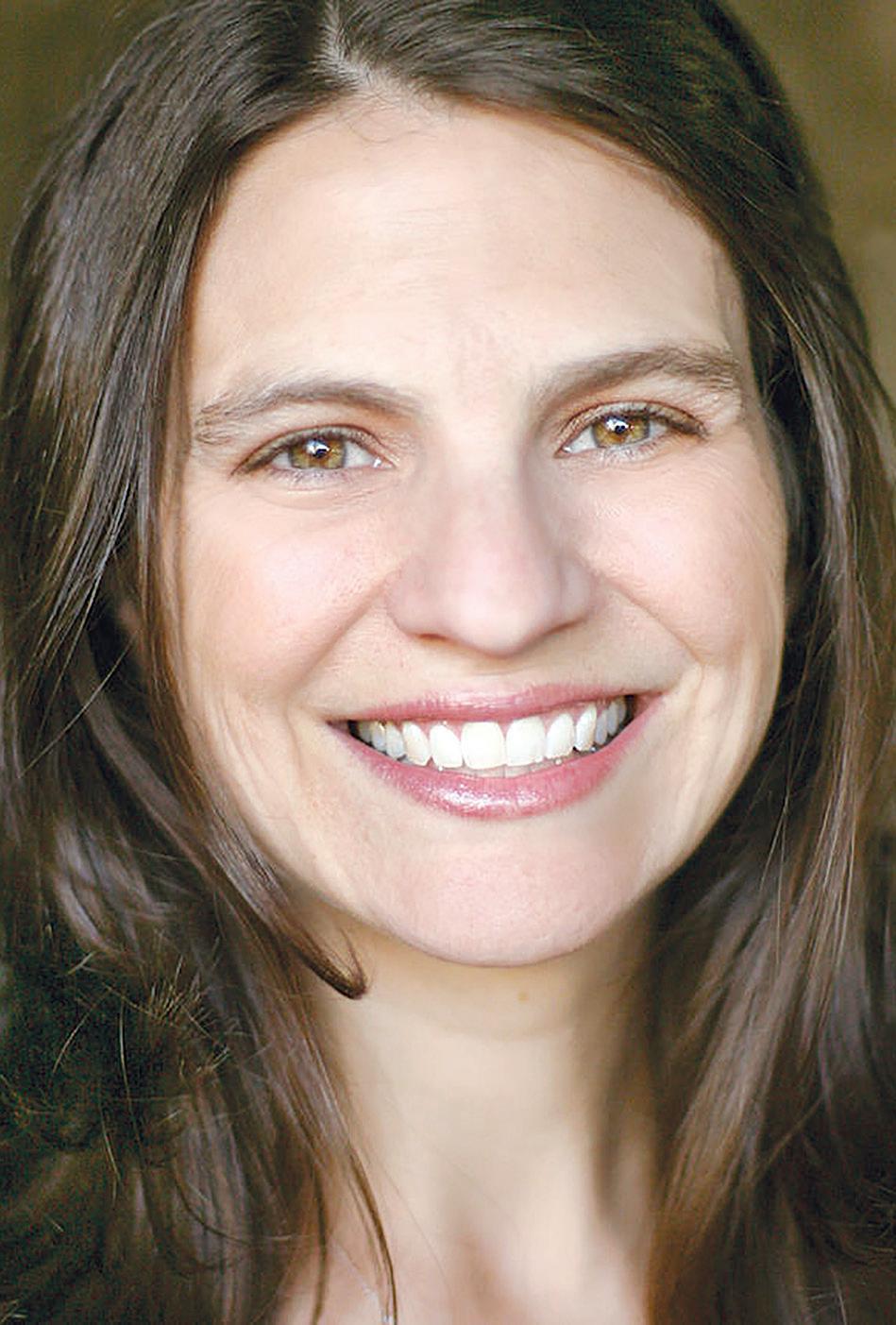KOSHER KITCHEN
Taking ownership of kosher restaurant

SENIOR LIFESTYLE
Seniors protest with art, ride motorcycles and come together in person

Taking ownership of kosher restaurant

Seniors protest with art, ride motorcycles and come together in person
Chloe Breger, a seventh-grade science and social studies teacher in the Glendale Elementary District, is eager to get back to the classroom this month.
She’s planning a variety of hands-on science experiments: extracting DNA from strawberries, building a roller coaster to teach force, building a satellite to teach weather and climate and even an experiment involving dancing raisins to teach the difference between living and non-living things.
Teachers arrived on Aug. 2, and the students follow soon after on Aug. 9. Breger’s excited to see her students in person, especially after spending so much time teaching virtually last year.
Still, she’s acutely aware that given a recent uptick in COVID cases and the prevalence of the highly contagious delta variant, plans could change.
On Tuesday, July 27, the Centers for Disease Control issued guidelines advising all school staff and students to wear masks inside, regardless of vaccination status. Arizona’s Department of Health Services seconded that advice. However, Arizona Gov. Doug Ducey affirmed that the state’s prohibition on mask and vaccine mandates will stand.
Parents and schools are left struggling to figure out how to keep students both safe and in classrooms.
Breger ended last year teaching classes online and in person since several of her students had to quarantine. She hopes things don’t get that bad again, but if a hybrid system becomes necessary, she knows she can handle it.
“Everything we learned last year prepared us for anything,” she said. “It’s just important to try to give the best education we can.”
Parents, too, are watching the data to see if they need to
 NICOLE RAZ | STAFF WRITER
NICOLE RAZ | STAFF WRITER
Rachell Krell feels connected to Judaism and to God. But she hasn’t been to services in years and isn’t part of a synagogue.
“I would love to eventually go back to services if I found a temple that was a good fit for me,” she said.
Krell, a senior at Northern Arizona University, said the focus of the synagogues she has attended has been about “keeping the temple going,” instead of “what is the value of this place?”
Krell is among the half of American Jews who attend religious services a few times a year or less, according to a 2020 survey by Pew Research Center published in May.
Of 11 possible reasons for not attending religious services, the top choice was “I’m not religious.” Other common explanations were “I’m just not interested” (57%) and “I express my Jewishness in other ways” (55%).
Several local synagogue leaders say they aren’t surprised, but few have answers for how to engage more people.
“Synagogues need to rethink how and what we mean to American Jews,” said NefeshSoul Rabbi Susan Schanerman.
“I think those of us who are lay and professional leaders are well aware of these challenges,” said Temple Solel Associate Rabbi Debbie Stiel.
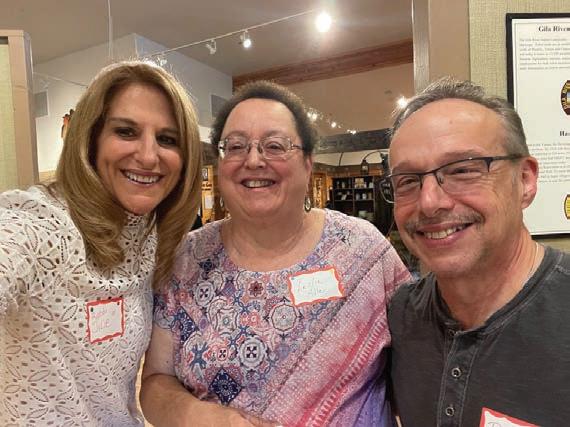
“The Pew report supports what we’ve already found,” said Marvin Berris, former president of Temple Beth

Shalom of the West Valley.
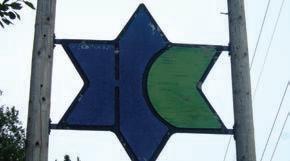
“We have to change the entire structure of how synagogues are run,” said Temple B’rith Shalom Rabbi Julie Kozlow. “We have to make synagogues feel more like home, and less like corporations.”

“People don’t know the possibilities, the richness that Judaic studies and worship can bring to their everyday
Steve Goode is riding his motorcycle across the country to highlight the issue of hunger and stopped in Scottsdale. To read more, go to p. B4.
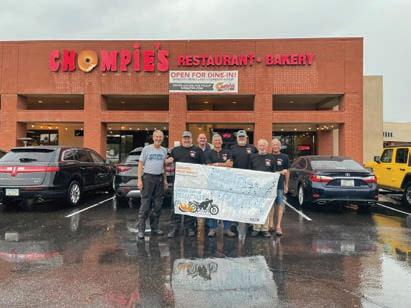
SHANNON LEVITT | MANAGING EDITOR
Synagogues know they’re in trouble. Here’s what Greater Phoenix rabbis are doing about it.
make contingency plans.
Sara Goldsen’s youngest son will be in person this fall at the New School for Arts and Academics in Tempe. He was already behind academically when the pandemic hit, and being online was difficult.
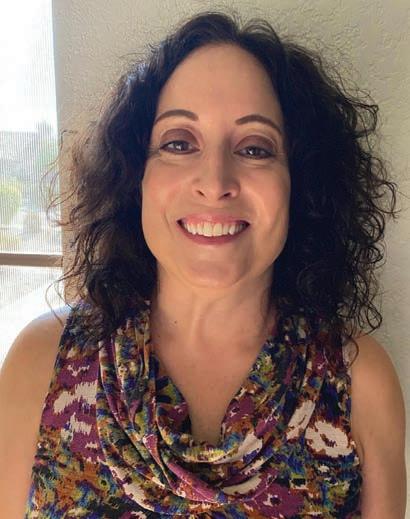

“COVID made a bad situation worse,” Goldsen said. She ended up reducing the number of classes he would take due to the difficulty of online learning. A teacher herself, she said there came a point when she decided to “pull the plug and say, ‘we’ll learn this next year.’”
Goldsen’s son is vaccinated and anxious to get back to school in person and to “some semblance of a regular life,” she said. But she’s concerned about COVID variants and that public schools aren’t allowed to mandate masks.
She’s ready to revert to home schooling if the community transmission rate returns to a high level.
Rachel Stegman is also nervous about the rise in COVID cases, but she’s preparing her two kids to return to Pardes Jewish Day School.
Last spring, she dragged her heels about letting them go in person.
She comes from a family of doctors and was “desperately trying to get them in the clinical trials for vaccines,” she said. “I haven’t sent them to camps or let them get together with friends. They’ve basically been away from other kids for 18 months.”
But they struggled to keep up with online classes, and they’re excited to go back this month.
“Part of me would keep them home due to the health risk, but the other half knows they need to be back,” she said. “It’s really hard.” Pardes handled health and safety better than other schools, Stegman said. And she’s decided to trust the school will again do everything to keep students safe.
Stacie Wittenberg is confident Pardes will be safe and has no worries when it comes to her daughter, Lucy, going back for eighth grade in person.
“All the precautions and protocols in place last year made me feel very safe,” she said. “They proved they’re able to successfully have all of the children on campus.”
She had hoped there would be fewer restrictions this year, but she expects that, given delta and other variants, school will look a lot like it did last year.
But as long as Lucy can finish her ninth year at Pardes in person on campus, “I’m fine with it,” Wittenberg said.
“I want her on campus every day all day, and I feel comfortable having her there every day.”
When Pardes closed its doors at the beginning of the pandemic, Lucy was devastated. A return to virtual learning would be their worst case scenario.
This time last year, Wittenberg said information seemed to come on a day-to-day
basis and things felt unsettled.
“While everything isn’t ‘normal’ this year,” she said, “I do feel more comfortable and confident they’ll have a year more like they’re accustomed to — as close to normal as possible.”
Administrators at Pardes are working to make that happen.
“We’re figuring out, in a thoughtful way and in the best interest of the students, how school will look,” said Peter Gordon, head of school. “We’re not going to rush to a decision, but there will be no Zoom option.”
Whether masks will be optional is something administrators are still considering, and they’re deciding which mitigating circumstances need to be in place to get everyone back on campus safely.
“If we go with masks we wouldn’t social distance, but if we don’t require masks, we have to look at social distance and pods,” he said. “We want the least amount of layers to
January 8
January 22
February 5
February 19
March 5
March 12
March 19
March 26
April 2
April 16
May 7
May 21
June 4
July 9
August 6*
August 20
August 27
September 3
September 10
September 24
October 1
October 15**
November 5
November 19
December 3
December 17
PUBLISHER Jewish Community Foundation of Greater Phoenix


GENERAL MANAGER Rich Solomon | 602.639.5861 rsolomon@jewishaz.com


MANAGING EDITOR Shannon Levitt | 602.639.5855 slevitt@jewishaz.com
STAFF WRITER Nicole Raz | 602.872.9470 nraz@jewishaz.com
ADVERTISING SALES CONSULTANT

Jodi Lipson | 602.639.5866 jlipson@jewishaz.com
SUBSCRIPTIONS 602.870.9470 x 1 subscriptions@jewishaz.com
GRAPHIC DESIGNER Frank Wagner | 410.902.2300 ads_phoenixjn@midatlanticmedia.com
Newmark Eckstein, Publisher | 1981-2013
Cecil Newmark, Publisher | 1961-1981
Pearl Newmark, Editor | 1961-1981
M.B. Goldman, Jr., Founder | 1948-1961
PROUD MEMBER OF
lives,” said Jewish Community of Sedona and the Verde Valley Rabbi Alicia Magal. “But we have to take them where they are.”
Orthodox communities have generally not experienced this problem, said Young Israel of Scottsdale Rabbi Ephraim Weiss.

“I think it’s very much ingrained in Orthodox circles that it’s just something you do — you go at least once a week. You want to be part of that social circle, and people are hungry for that.”
But the pandemic changed that dynamic, he said.
People have either gotten more comfortable praying at home, have found other options or fallen out of the routine of going to shul at least once a week, he said.
Unlike in some realms of the Jewish world, Weiss believes most people will return when the threat of COVID is gone.
Many synagogues share a common arc of membership: young families join to give their kids a Jewish foundation and then stay somewhat active until the b’nai mitzvah. But after that, the families and kids seem to disappear from synagogue life altogether.
“We have to make sure that they understand that Judaism is a lifelong learning. And we’re not done, we just started,” said Frank Jacobson, president of Congregation Or Tzion.
The majority of members are older than 55 and it’s been difficult to draw in young adults.

“We’re never going to be more compelling than a movie theater for a weekday or a Sunday night. That’s just not what synagogues do,” said Temple Beth Sholom of the East Valley Rabbi Herschel ‘Brodie’ Aberson.
Berris said it’s not just young adults who are challenging to reach. Local retirement living communities often have social clubs and activities that draw in synagogue members.
“They provide some Jewish content for people that no longer want to be affiliated with the synagogue movement or temple. It is very difficult to reach these people. They don’t seem to have a need for any of the religious services except the holidays,” Berris said.
TBSWV and other synagogues have identified interfaith families as a prospective demographic that may be interested in temple membership.
“It’s in our best interests, in the interest of the Jewish community at large, to provide a place for interfaith families to be welcome,” Berris said.
Synagogues across the spectrum are also looking to programming as a way to draw in and keep members.
“There are many gateways into Judaism and we try to provide access through as many as possible,” Magal said. “We want to offer something for every taste, and we’re a small synagogue.”
Schanerman said the topic of programming is a regular discussion at board meetings.
Solel tries to provide a “variety of programs and activities that will appeal to different age groups and stages of life,” Stiel said. The synagogue has a hiking club, a knitting group, a book club and Torah study, for
we ask them what committees and groups they are interested in being involved in, and then we connect them to leaders of those temple activities.”
Or Tzion is “always looking to figure out ways of new programming and new ways of engaging our community,” Jacobson said.
But programming is not the only answer.
Rabbi Shira Koch Epstein, executive director of the Center for Rabbinic Innovation, a project of the Office of Innovation, has some ideas for synagogue growth. But, she warned, they aren’t easy to implement.
“It’s not about specific programs. It is not about the institution, as an institution. It’s really about relationships,” she said.
The first step is for synagogues to get crystal clear on what the vision and mission is for each congregation. “Is it about preserving institutional norms? About meeting people where they are and evolving a Jewish life with them? What is the ultimate purpose of your work?” Epstein asked.
Magal said her synagogue is an extended family for her congregants, most of whom are retired and don’t have relatives nearby.
“We are here for people in their joyful times, we’re here for people in their sad times. We support each other,” she said.
Kozlow wants her synagogue to be a “house of Jewish life.”
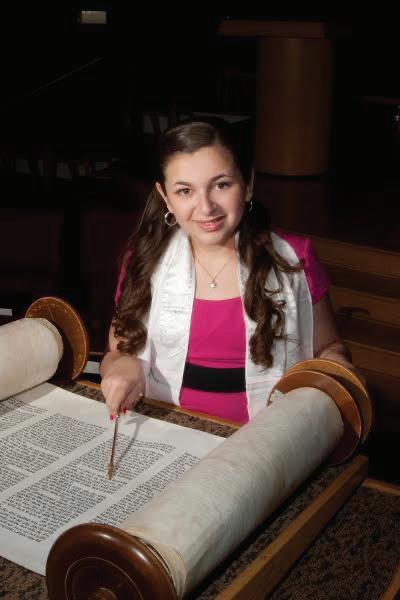
“It’s got to be a place where people love to come, where they feel welcome, where they feel no judgment for wherever they stand in their Jewishness, and, above all, the spiritual essence of the religious endeavor has got to permeate everything,” Kozlow said.
All Jews have had different childhood experiences, she said. “We can’t be everyone’s synagogue that they grew up in. We have to be something else that respects all their different experiences, but reflects the fact that we are just an amazing mix of people.”
Aberson said that synagogues need to be the “everything of the Jewish community.” Synagogues are a place to connect with people on a personal level, for people to sing together, to find people to have Shabbat dinners with
and to learn about Judaism, he said. But it’s OK for people not to want those things.
In some ways synagogues with massive memberships “are kind of missing the point,” he said, “because you can’t have those kinds of communities. It ends up being more of a service-oriented institution than community.”
Congregation Kehillah Rabbi Bonnie Sharfman said she definitely wants her congregation to grow, but she also wants it to be small enough that she can offer what is most important: a relationship. A relationship with the rabbi, a relationship with the other congregants and a relationship with God, “whatever you perceive God to be,” she said.
“I always want the congregation to be small enough, so that I, as the rabbi, know everyone and I’m reasonably accessible to them,” she said. “A big part of our congregation is the relationship that is formed between congregants also.”
Once a synagogue knows its mission, then each leader must find the people who are, or could be, interested but aren’t already showing up—” and then be ready to change how you operate to achieve your mission with them, not for them,” Epstein said. It’s a risky, timeintensive process.
“You have to go and meet people you don’t know, who might not like you or might be worried that you have an ulterior motive that they don’t like,” she said.
It takes time and hard work to find the people who have some Jewish interest but are not interested in synagogue life, and then start a conversation. “You have to go out not trying to recruit them, but actually trying to just know them and understand what gets them up in the morning,” Epstein said.
This has been considerably more difficult during the COVID-19 pandemic.
“There are people who want to connect, but don’t quite feel safe coming out yet. Then there are people who are most anxious to resume in-person synagogue life,” Sharfman said.
Before COVID, Sharfman said Kehillah would do “all sorts” of meet and greets, and host social and cultural events.
“People would be invited to come visit the synagogue, meet with our members, meet with the rabbi. Many elements of this we can still do, but it is going to look and feel different given the reality with COVID,” she said.
Kozlow recently hosted an in-person meetand-greet at the Phippen Museum in Prescott.
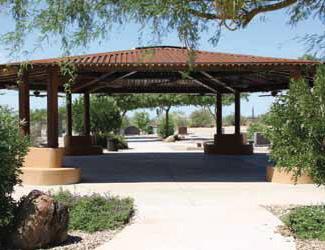
“The purpose of the meeting is quite spiritual. And yet, in this day and age, it needs to come off as a social gathering,” she said. Aberson hasn’t had much time to implement his vision for outreach since he arrived in 2019, but he has ideas. “It just kind of depends on not having COVID be a problem or other wide-scale communicable diseases,” he said. “There’s models from the L.A. Jewish community that I want to employ here.”
For example, he would like to work with large companies to host discussions on Jewish topics over lunch and get to know people, as well as spend time at coffee shops.
“I’d like to get off of the synagogue grounds and meet people where they are — their
have the most amount of safety.”
He is confident that, like last year, the school will “get it right,” he said.
Jessie Bustamante, Arizona Centers for Comprehensive Education and Life Skills’ chief advancement officer, said safety is her school’s priority, too. But serving students with multiple special needs makes some protocols difficult.
Students will be asked to wear a mask, but the reality is that some simply don’t understand how to do that.
“I don’t believe our students comprehend what the pandemic is and it’s difficult for them to social distance and wear masks because they don’t understand what’s happening. We rely on our staff,” Bustamante said.
Meanwhile the school’s pandemic response team will continue to meet every few weeks to reassess.
“I’m not nervous, but I know this is not over,” she said.
Emily Zappa, head of school at Desert Jewish Academy, is just emerging from “camp mode” as the head of Camp: Destination. There they started with a strict mask policy, but as summer went on and all campers were vaccinated, they relaxed that rule. She had hoped things could continue apace into the school year, but “now I’m feeling a little concerned,” she said.
She is back to checking case rates every day and preparing to incorporate more stringent measures. Her job is to make sure everybody has “their eyes and ears open” so they can be prepared for anything.
“Normal is gone for me,” she said. “I’m looking to our families and staff to help us figure out our new norm for school and our new reality — it’s an all-hands-on-deck effort.”
Still, she wants the kids to be back in the classroom. “We’ll do whatever we can to make that happen,” she said.
Students’ emotional well-being is Jodi Peterman Sandler’s priority. And she’s “pretty nervous” about it. Not only for her students, but for her kids.
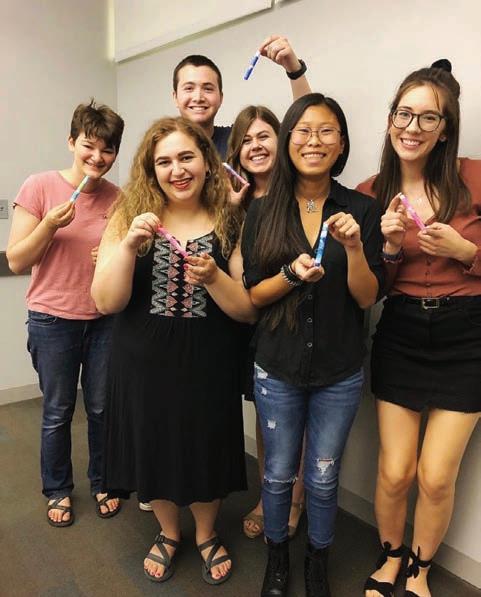
Sandler is the school psychologist at Pioneer Elementary.
“We’ve seen statewide and nationwide that students are anxious, depressed, lonely, isolated and have extra stress at home. That will continue through the school year,” she said.
One of the biggest problems, she said, is that young people lack coping skills and aren’t prepared to handle crises.
“We’ve never dealt with something like this (COVID) so how do we expect our children, with limited life experience, to handle things?”
Even with the risks of new variants, she said, in-person school provides valuable structure, important contact and good resources to help students through the worst of their emotional turmoil.
She advises parents to talk to their kids directly. If a child seems sad, for example, a




parent should ask about it: “You seem a little sad around the house lately. Do you want to talk about it?” For younger kids, a parent might encourage drawing. Broaching the problem directly and in an age-appropriate manner is key.
“Kids think they’re the only ones who are going through something, and it’s not true,” she said. “We’re all just trying to make it through.”
Pardes’ staff is always looking out for the emotional well-being of the students: who’s doing well, who needs more support, who’s feeling anxious, according to Anna Lock, the academic principal.
It goes hand-in-hand with academics, she said. And while most people saw the last year as something to survive, Pardes thrived, she said.
“Our kids had an exceptional year under very difficult circumstances,” she said. “Everyone’s excited to come back this fall, because they recognize the value of being in person, even under difficult circumstances.” JN
neighborhoods, their workplaces — and be in the community and actually be a part of it in my capacity as a rabbi,” he said.
Temple Kol Ami Rabbi Jeremy Schneider said his synagogue has sustained 10 consecutive years of growth. “The biggest testament to our growth has been my ability to connect with the members and families that choose to be part of TKA,” he said. “Creating a welcoming culture where everyone felt at home was the key.”
But many synagogues are limited in their resources to be able to spend as much time as needed on relationship building with new, and most importantly, prospective members. Most synagogues have a financial structure based on membership and program fees, Epstein said, making it a challenge for synagogues to be driven more by community.
“If your whole community has been predicated on membership dues, and you have a facility to keep up, it’s hard to say, ‘Okay, now shift to this relational thing that people may not pay for for a long time,’” she said.
This shift necessitates a different way of thinking for funders, she said.
“It’s imperative for those who have resources and care about the future of Judaism to actually go and say, ‘Here are some resources for you to do this relational community

building. I’m willing to support this initiative for three years until you see some of the people you’ve engaged wanting to invest in their own communities.’”
One of the reasons Or Tzion switched its dues model to an annual “Gift of the Heart” payment of whatever amount a congregant thinks a membership is worth, Jacobson said, was to encourage relationship building, as opposed to a transactional relationship.
Or Tzion just welcomed its new spiritual leader, Rabbi Andy Green, in July.
One of the things the board was looking for when searching for a new rabbi was somebody who shared the philosophy of “relationship Judaism,” Jacobson said.

“What Rabbi Green brings us is exactly what we feel we have had, and what we need even more of,” Jacobson said.
Aberson said it is difficult to allow synagogues to become more flexible entities, because many have large facilities with mortgages, upkeep costs or both. “But, at the same time, I don’t think you can make synagogues grow by orienting as a business, like Netflix, trying to get more people to subscribe,” he said.
Religious communities don’t function in the long term by getting people to sign on for things they’re not actually interested in, Aberson added.
TBSEV has an annual dues model, but anyone who cannot afford the sticker price
can pay only what they can afford.
Aberson is personally not a fan of the dues model because it creates an “in group-out group relationship.”
Changing the dues model is an ongoing conversation, he said.
“People have legitimate concerns, and that’s something that has to be worked through.”
Kozlow said she’d like to see the board structure change.
“You take lay people who don’t know about creating holy environments, and you give them the keys to the whole endeavor. And then you take your spiritual leader and you keep reminding them that they’re just an employee.”
This kind of “corporate Judaism,” as she calls it, leads to programming being branded as “adult education” instead of something warm and inviting like, “ — come and learn.”
“You hear those two things, and they have a different effect on you. One is very corporate, very stern, and the other is Ta-Shma. It’s a very different thing,” she said.
Despite the challenges, local leaders say synagogues still have an important place in Jewish life.
Synagogues provide an “immediate and close relationship to a rabbi, to a Jewish
community, and to the rites and rituals that matter to us as a Jewish people,”
Stiel said only a synagogue membership can provide the means to live a “full Jewish life,” with “worship, acts of kindness/ justice, sacred study and spending time as a Jewish community.”
Still, the road ahead will be bumpy.
“Clergy and congregations and their leadership need to change the way they do business in order to fulfill their vision and mission for the Jewish people,” Epstein said. JN



On July 17, Arizona Sen. Wendy Rogers (LD-6) declared on Twitter that Americans are “being replaced and invaded” by migrants entering through the United States’ southern border.
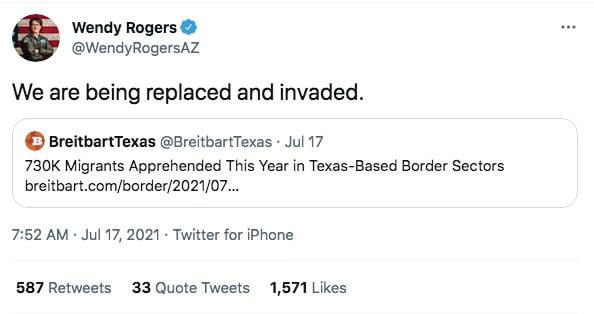
The Anti-Defamation League, the Jewish Community Relations Council of Greater Phoenix and the Phoenix Holocaust Association spoke out against her rhetoric.
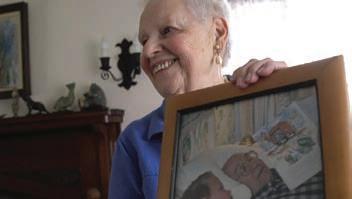
Tammy Gillies, ADL Arizona regional director, said Rogers is echoing the “classic white supremacist” great replacement theory that suggests native-born American citizens are being replaced by foreign-born immigrants.
Paul Rockower, JCRC’s executive director, said that kind of language is directed “to people who have a propensity for violence directed at different race and faith communities, including our own,” and it’s dangerous.
“You can draw a direct line from that language to multiple atrocities, from Charlottesville, to Pittsburgh, to New Zealand, to El Paso,” he said.
Rogers did not respond to Jewish News’ request for comment.

In the last few years, there have been a string of events and deadly shootings tied to the ideas espoused by the replacement theory.
In 2017, during the deadly “Unite the Right” rally in Charlottesville, Virginia, a crowd chanted “Jews will not replace us.”
A year later, 11 people were killed when a gunman opened fire in a Pittsburgh synagogue in October 2018. Before the shooting, the shooter complained on a social media site about HIAS, a Jewish nonprofit that assists refugees in the United States.
Before a white supremacist killed 49 worshipers at a pair of New Zealand mosques in March 2019, the gunman posted a manifesto online titled, “The Great Replacement,” in which he linked immigration to white genocide.
Five months later, a white supremacist killed 22 people, many of them Latino, at a Walmart in El Paso, Texas, in what he called a “response to the Hispanic invasion of Texas.”
On July 20, Rogers dug in her heels and wrote on Twitter that “We Americans who love this country are being replaced by people who do not love this country. I will not back down from this statement.” She added, “Communists & our enemies are using mass immigration, education, big tech, big corporations & other strategies to accomplish this. The groups who are doing this undermine our families, our history, our faith, and our rights. We need more people who love America, not less.”
Lindsay Schubiner,
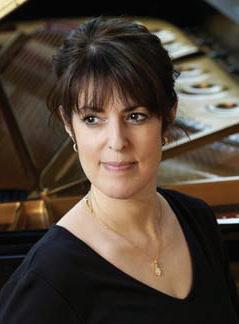

program director at


Western States Center, said “time and again, we have seen this ‘great replacement’ conspiracy theory tied to bloodshed in the U.S. and abroad.” At a time with anti-immigrant bigotry at historic highs, she said her comments are particularly dangerous.
“There is no way to see Sen. Rogers’ statements other than bigoted and dangerous to the democratic system she is elected to serve,” she said. “Rogers’ colleagues have a responsibility to disavow her comments and denounce bigotry in all its forms or else be implicated in the violence that may follow.”
NCJW AZ President Civia Tamarkin said Rogers’ “hate-filled rhetoric provides a dog whistle to white supremacists. There is no place in government for those who evoke the slogans and mantras of racism which trigger crimes against humanity, especially in today’s political tinderbox.”

Gillies said this kind of language is racebaiting. “As we continue to experience one of the worst refugee crises since World War II — and as we witness a rise in antisemitism and extremism across the country — we at ADL remain focused on our mission of fighting xenophobia and hate.”
Rockower and PHA President Sheryl Bronkesh agreed that the use of “thinly-veiled hate speech” is especially dangerous given the rise of antisemitism and extremism in Arizona and across the country.
An act of antisemitism was discovered in mid-June at the Chabad on River in Tucson. An entry door was defaced with a swastika and an antisemitic slur. It came just weeks after vandalism of another Tucson synagogue, Congregation Chaverim, where a rock was thrown through a window in the front door.
A recent survey by the Pew Research Center found more than 9 in 10 Jews say there is at least “some” antisemitism in the United States, including 45% who say there is “a lot.” Slightly more than half of Jews surveyed (53%) nationally say that they feel less safe today than they did five years ago as a Jewish person in the U.S.
“The great replacement theory is vehemently antisemitic,” Rockower said. “She can be coy about this all she wants, but we know exactly who she’s whistling to.” JN



Rabbi Jordan Brumer is living his childhood dream.
“I’ve always been fascinated with restaurants and catering — and just the hustle and bustle of a restaurant and a kitchen,” he said.
On May 1, Brumer became the owner of Kitchen 18, a staple of the Phoenix area’s kosher restaurant scene. He’s long enjoyed the restaurant as a customer, and when he heard the previous owner, Natan Uvaydov, was looking to sell, Brumer approached him.
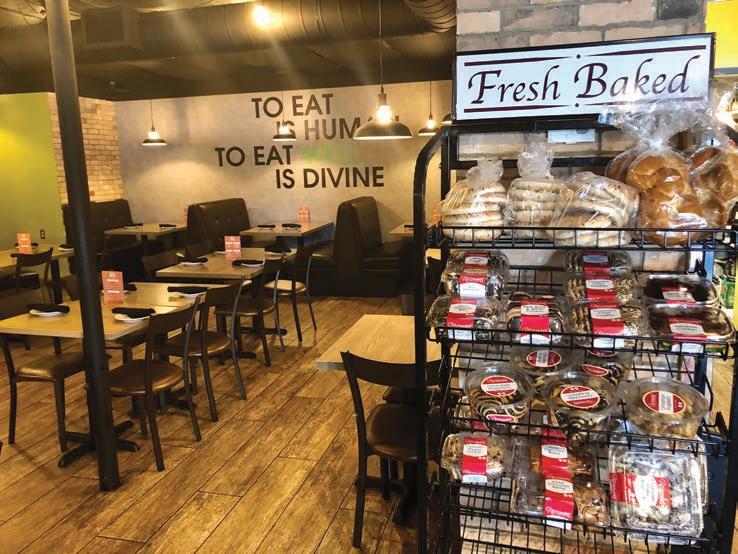
“As I tell people, I fell off my chair, banged my head and the next thing you know I owned a restaurant,” he joked.
Brumer doesn’t have any previous experience in the restaurant industry. For the past 16 years, he has run Jewish Arizonans on Campus, which he also founded. He said there’s “definitely a lot of overlap” when it comes to managing staff and working with the administrative side of things. Kitchen 18 has six full-time staffers in the kitchen, and six part-time servers. Brumer is now the president of JAC, and his wife, Risa, took over his role as director.
Many who know him, or used to eat with him at the restaurant as a fellow customer, are surprised to learn Brumer owns it now.
“It’s almost like when you watch an actor in a movie and then watch a different movie with the same actor,” said Jeremy Rovinsky, who eats at the restaurant every so often.
“One day I see Rabbi Jordan Brumer in a white shirt on a college campus or something, and the next day I see him in the Kitchen 18 outfit running the restaurant.”
Brumer said regulars are getting a kick out of seeing him on the other side of the counter, and many are eager to share new ideas for the restaurant.
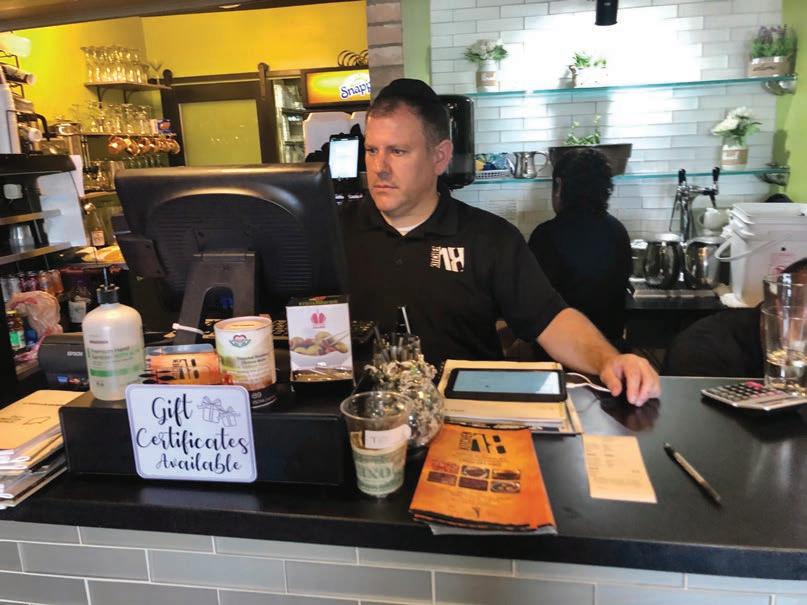
“When we would go with our family we would see people repeatedly,” he said. “I have sensed a strong communal support.”
Tempe resident Rafi Turner eats at Kitchen 18 about once a month. “It’s the best restaurant in town, I’ve always said that.” He likes the menu the way it is — his favorites are the orange and sesame chicken. “But they have a good steak salad too. You can’t go wrong on their menu. I mean, their wings are really good, too.”
Brumer doesn’t anticipate any big changes. “I’m a big believer in ‘If it’s not broken, why fix it?’” he said, but he’s made a few tweaks and there may be more on the way. He’s brought back some non-meat items, aims to expand the catering part of the business and is considering putting sushi back on the menu, by popular request. Brumer said customers are also encouraging him to bolster the alcohol menu.
Uvaydov is excited to see Brumer try new things and wishes him success. He renovated the restaurant during the pandemic,
The main clientele of Kitchen 18 are outof-towners, and the pandemic took a toll on the restaurant — and the entire industry.
Twelve percent of the 100,000 restaurants that existed in Arizona at the beginning of 2020 are now closed, according to Susie Timm, president of Knife & Fork Media Group, which represents the Arizona Restaurant Association.
Brumer said he is seeing an uptick in tourists and is hopeful that will continue.
Phoenix Sky Harbor International Airport saw a 507.1% jump in airline passenger volume in May, compared to the same time last year.
The sale of Kitchen 18 marks Uvaydov’s exit from the restaurant industry. He sold LaBella Pizzeria and Restaurant two years ago and Cafe Chenar 18 months ago. It’s been a meaningful endeavor, but Uvaydov, who has three young kids, wants to be a more present, energetic father.
“Every chance I had I was resting so I
could have energy for when it was time owning life.
When he moved back to Phoenix in 2013 from New York, he felt the kosher food scene could use a boost. “I wanted people to have an opportunity to come and enjoy good, kosher food,” he said, especially travelers. When Uvaydov became observant in 2004 fueled by a desire to live a more family-oriented lifestyle, eating kosher food out of the house was his biggest challenge. “You can’t always bring lunch with you from home,” he said.
Brumer has seven kids, the youngest of whom is 7. So far, owning a restaurant isn’t exactly what Brumer expected, and he’s certainly gotten a taste of the hustle and bustle.
“There’s moments that it gets stressful when it’s very busy in the restaurant, and orders are coming in, and the kitchen staff is getting anxious and people are waiting in the restaurant for their food,” he said. “But it’s been fun so far.” JN
40-CLASS SERIES: The 40 Greatest Debates in Jewish History!
Rabbi Dr. Shmuly Yanklowitz
Aug 10, ‘21 - Jan 11, ‘22 @ 10:00 am PT
How does the Rambam resolve a clash between Torah and Reason?
Professor Tamar Ross

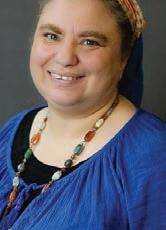
Wednesday, Aug 18 @ 11:00 am PT
Practical Teshuva Workshop – “Guided Introspection”

Dr. David I. Bernstein
Wednesday, Aug 25 @ 12:00 pm PT
Squirrel Hill: The Tree of Life Synagogue Shooting and the Soul of a Neighborhood
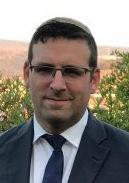
Mark Oppenheimer
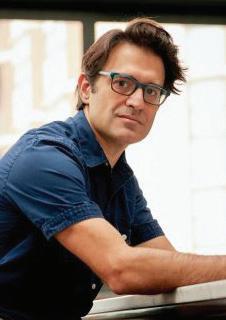
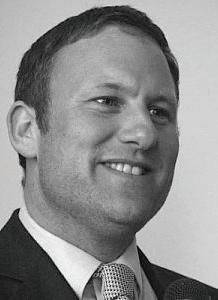
Monday, Oct 4 @ 11:00 am PT
The Jewish Genius for Surviving Catastrophe In Person
DR. SHERMAN MINKOFF MEMORIAL LECTURE
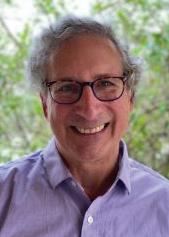
Rabbi Ed Feinstein

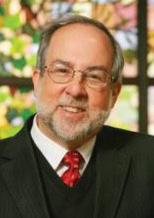
Thursday, Nov 4 @ 7:00 pm PT
The Messianic Idea – A Conversation with Rabbi Avi Orlow
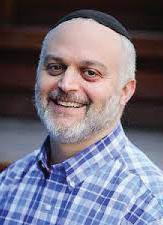
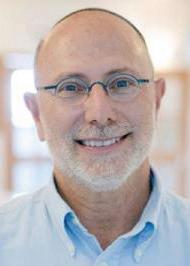
Rabbi Avi Orlow
Monday, Aug 9 @ 1:00 pm PT
How the Talmud Understands “Tikkun Olam”
Rabbi Devin Maimon Villarreal

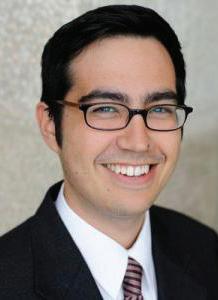
Wednesday, Aug 18 @ 2:00 pm PT
Reading Intolerant Texts in a Tolerant Society
Rabbi Norman Solomon
Thursday, Aug 26 @ 9:00 am PT
Abortions and Halacha
Rabbi Yoni Rosensweig
Thursday, Oct 14 @ 1:00 pm PT
Hannukah in the Bible?
Professor Marc Zvi Brettler

Monday, Nov 29 @ 1:00 pm MT
Faith and Justice: Where Our Greatest Aspirations Meet Our Core Commitments
HAMMERMAN FAMILY LECTURE
Rabbi Sharon Brous
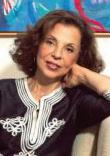
Tuesday, Aug. 10 @ 1:00 pm PT
When, If Ever, Is It Right To Publicly Criticize Israel?
Rabbi Gideon Sylvester
Monday, Aug 23 @ 9:00 am PT
The Shemitta Year & Jewish Justice!
Rabbi Leah Shakdiel
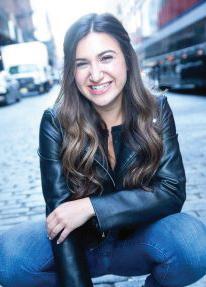
Tuesday, Aug 17 @ 9:00 am PT
The Perception of Anti Semitism on College Campuses in the U.S. and the U.K.
Rachel Underweiser
Monday, Aug 23 @ 1:00 pm PT
Respecting The Elderly
Rabbanit Sharona Halickman
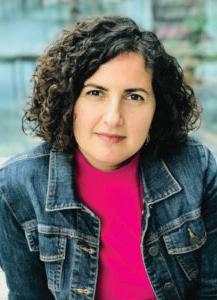
Wednesday, Sept 1 @ 9:00 am PT
Beyond Caging: Restorative Justice and Rethinking Safety

Rabbi Dr. Aryeh Cohen
Wednesday, Oct 20 @ 1:00 pm PT
How Heschel Taught Me To Be An Artist
Mindy Weisel
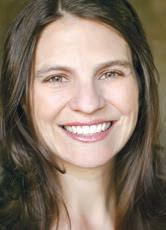
Thursday, Dec 2 @ 1:00 pm MT
Becoming a Soulful Parent
Dasee Berkowitz
Wednesday, Sept 1 @ 12:00 pm PT
How Many Lovers Are in the Song of Songs?
Rabbi Dr. Devorah Schoenfeld

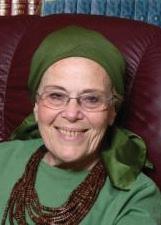
Monday, Nov 1 @ 1:00 pm PT
Disability and the Politics of Healing
Rabbi Julia Watts Belser
Monday, Dec 6 @ 1:00 pm MT
Learn with Valley Beit Midrash All Season Long


Almost all events on Zoom, just $18 per event! Season Pass Holders enjoy unlimited attendance for $54 a month Learn More at www.ValleyBeitMidrash.org
Afew years back, the president of the Union for Reform Judaism, Rabbi Rick Jacobs, was invited to debate one of the candidates for Chief Rabbi of Israel in the Knesset.
In sparring with Jacobs, the Israeli rabbi claimed the Reform movement invented tikkun olam, which Jacobs suggested, speaks to a larger division in the Jewish world and a widening gulf between denominations.
“Is social justice really in the aorta of Jewish life? Or is it something progressive Jews have added on and made it into a religion in and of itself?” Jacobs posed these questions during a Valley Beit Midrash presentation on Monday, July 12.
A recent Pew study found more than half of American Jews generally believe working for justice and equality in society is essential to their Jewish identity. But the phrase “social justice” has become politicized, according to Jewish community leaders.
There is a broad perception that “social justice is always liberal,” said Jacobs. The perception comes at a time when the nation is polarized, and Jewish Americans are trending in that direction as well.
Temple B’rith Shalom Rabbi Julie Kozlow remembers the first time she felt “this new energy” from the pulpit.
The nation’s focus was on the treatment of undocumented minors in U.S. custody. Images of migrant children caged at the border were featured in print and television news. She gave a sermon focusing on the ethical ramifications of what was happening.
“It was the first time ever in my life that I got a complaint about a sermon because it was being called political,” she said. “I was deeply offended. It was pure and simple Jewish ethics that inspired me to write that sermon. It had nothing to do with politics at all.”
Jewish Community of Sedona and the Verde Valley Rabbi Alicia Magal has also noticed a shift.
“Social justice is what we as Jews are
passionate about because of our prophetic tradition,” she said. “But we now have this kind of tension where many humanitarian issues have become polemicized, politicized and partisan.”
Or Adam Congregation for Humanistic Judaism Rabbi Jeffrey Schesnol said social justice has become something that “somehow excludes the conservatives, which it needn’t do at all.”
While 71% of Jews are Democrats or lean Democrat, 75% of Orthodox Jews are Republican or lean Republican, Pew found.
Rabbi Dr. Shmuly Yanklowitz, president and dean at Valley Beit Midrash, said the far right has painted social justice as something that is inherently political. But, he argues, it’s not.
“Social justice is a phrase that just implies that the vulnerable need more protection, and that we have unjust systems,” Yanklowitz said.
“It’s very open to interpretation as to what social justice can or must entail. But to oppose social justice, I think, is to oppose Judaism.”
Yanklowitz, who identifies as Modern Orthodox, said he feels the Orthodox movement has slid too far to the right in a way that is harmful to the American Jewish community. He pointed to the event on the first day of Tish B’av, on July 17, when hundreds of Orthodox teens took over the egalitarian prayer section at the Western Wall in Israel, targeting the Conservative movement.
At the same time, Jacobs and Yanklowitz said they often hear Jewish people say they feel unwelcome in progressive spaces. Yanklowitz said he rejects extremes on both sides. “We see rising antisemitism on the far left, and we see it on the right. Those extremes are not helpful to the Jewish community,” he said.
In order to combat antisemitism, it is incumbent upon Jewish people to possibly “show up in uncomfortable spaces,” Jacobs said, and, by doing so, begin coalition-building outside the faith.
“If we don’t show up for the racism that is literally killing our neighbors, then frankly, we don’t have a chance here,” Jacobs said.

Schesnol said history has shown that a world with limited attention to social justice paves the way for antisemitism. “The greater amount of social justice, the more protection it provides the Jewish community,” he said. “Jews have a higher stake in the game, in a way, to support social justice causes.”
Many area synagogues and congregations are involved with social justice work.
“Social justice is a part of our culture and it is weaved into everything we do here,” said Temple Chai Associate Executive Director Kaylie Medansky, who is responsible for social justice programming. The synagogue has “ongoing and frequent hands-on social action programs,” clergy regularly discusses social justice and it is woven into the synagogue’s religious school curriculum and Early Childhood Center, she said.
“Repairing the world and working to make the world a better place is a Jewish value, and there is a way to engage in this work that is not partisan, but inclusive of the members of our community,” she said.
Temple Emanuel of Tempe has previously helped refugees in need and provided meals to those without homes. Since Rabbi Cookie Lea Olshein’s arrival seven weeks ago, she has facilitated relational meetings with congregants, as well as a focus group, to discuss the future of social action and social justice work at the synagogue.
Olshein believes that “we are called to actualize the teachings of our tradition and make real the idea of Jewish doing, in addition to prayer.”
Temple Beth Sholom of the East Valley Rabbi Herschel ‘Brodie’ Aberson hasn’t had much time to implement his vision for social justice, since he started in 2019. But he would like to see social justice be a “driving force behind” resource allocation, learning and other areas of the congregation.
“Social justice doesn’t have to be a politically charged term,” he said. “If we’re all on the same page that a society should be working toward justice for everyone, conceptually, it shouldn’t be an issue. I think it’s just become part of the political football of labels.”
Social justice isn’t a particular type of action, he said, like protesting or marching. It’s about trying to understand what is happening and how to make it better.
“Social justice and engagement in the larger world and making a healthier, better society is the why, the point, the end that we’re hoping all of this other stuff in Judaism leads to.”
At the JCSVV, Gloria Brown, chair of the
Social Action Committee, said the committee goes out of its way to approach social justice issues in a nonpartisan way. For example, during the protests against police brutality after the murder of George Floyd, the synagogue held a three-part virtual program about race and social justice exploring Judaism’s response to social justice issues, and the experiences of Jews of color.
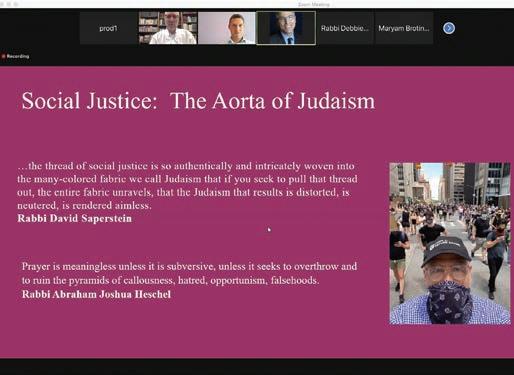


Magal said the JCSVV also tries to avoid political issues by focusing on community issues, like homelessness and hunger.
Temple Solel Senior Rabbi John A. Linder and Associate Rabbi Debbie Stiel said the congregation has opportunities to engage with social justice work beginning in preschool. Members donate and volunteer with organizations helping society’s most vulnerable, and have discussed systemic issues of injustice and inequality.
He said it is unfortunate if “social justice” carries a label.
“I don’t think any stream of Judaism would look at social justice as unique to any one of us,” Linder said. “Any debates center around different points of view. That’s healthy, that’s Jewish. What we are seeing in our community, and across the country, are deepening divides because we don’t know how to respectfully hear the other and look for ways to compromise.”
Stiel said the Jewish people have been commanded to take care of the most vulnerable and make sure all are treated equitably. “We can make a far bigger impact when we work together.”

At Or Adam, Schesnol said the congregation does things like collect items to donate and volunteer at soup kitchens.
“Social justice is a fundamental part of Judaism,” Schesnol said. “It’s one of the 613 mitzvot of the Torah that says you shouldn’t stand by and allow for injustice to prevail.”
Kozlow said whether it is called “justice,” “social justice” or something else, it is the value and work that matters.
“Our existence is all about the pursuit of justice,” Kozlow said. “We Jews are the lucky ones who have been given the job to carry that message through time. It’s not an easy job, but it was given to us.”

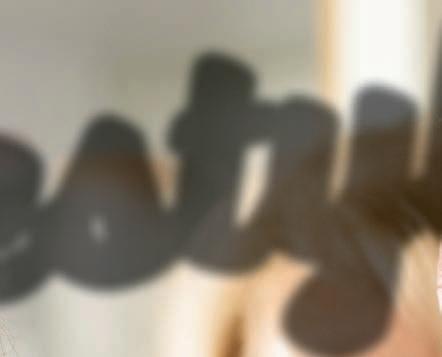
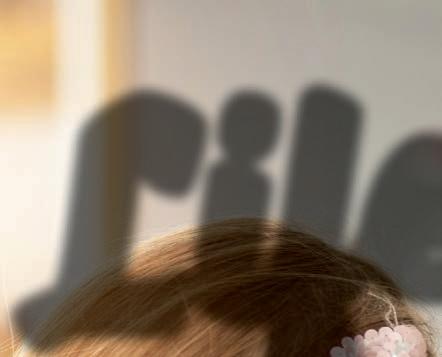


It was around 2007 when Rabbi Zalman Levertov, head of Chabad of Arizona, realized he had made a mistake.
He got a call one day from a senior in Phoenix who needed a Jewish calendar. She said her eyesight had deteriorated and she wasn’t able to drive. He copied down her name and address and gave it to somebody to deliver the calendar.
“And later it dawned on me that maybe she needs food, maybe she needs somebody to get her stuff,” he said. But by then her information was lost.
“I felt very bad that there are people around who may not have much, may not have relatives, and I should probably do something about it.”
So, he did.
When his son and daughter-in-law, Rabbi Levi and Chani Levertov, said they wanted to move from New York to Phoenix and continue the work of Chabad, Zalman offered them the job of establishing a center in downtown Phoenix, where they could also serve seniors.
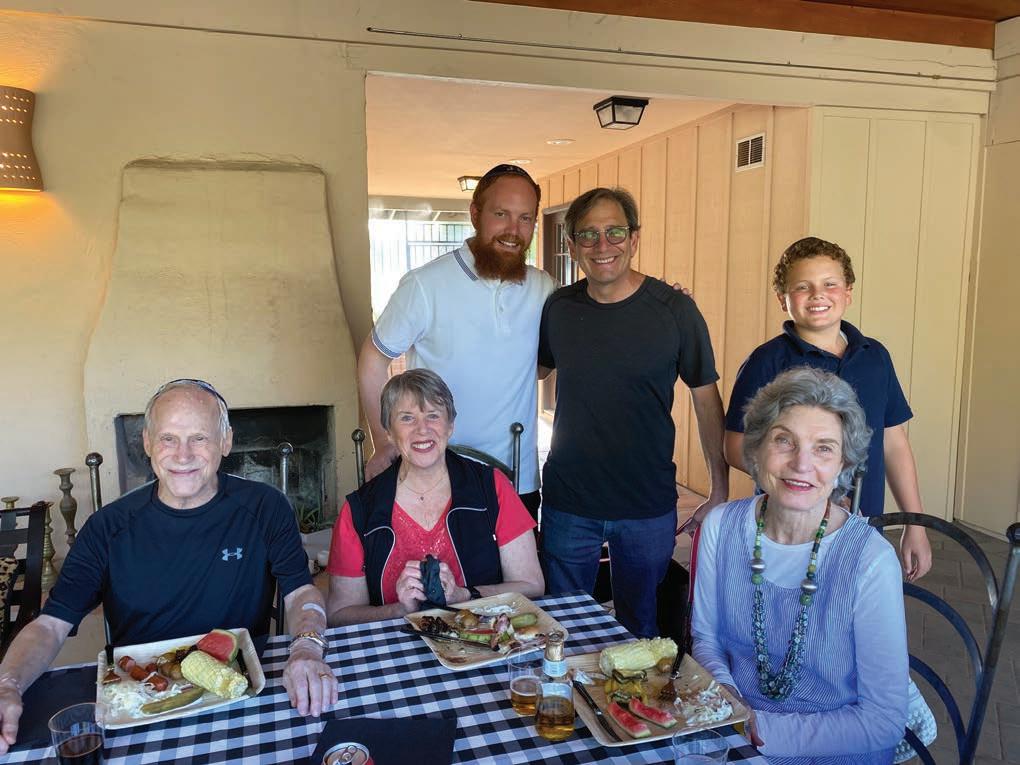
Smile on Seniors was originally envisioned as a side project, but it quickly turned into a massive undertaking. The nonprofit now offers a robust infrastructure for seniors and has captured the attention of other Chabads across the country.
“We didn’t realize how much seniors want and need,” Chani said. “Smile on Seniors became our full-time job fairly quickly, and we never ended up moving downtown.”
The Levertovs launched SoS in November 2009 as a “one trick pony,” Levi said. “It was all about one-on-one visits with seniors.” But with Chanukah right around the corner, it immediately grew into more. The couple asked a senior living community about what was in the works for the upcoming holiday. Nothing. They sprung into action and hosted a Chanukah party for three different communities.
“That’s really how everything took off,” he said. “That
led to more senior living communities.”
They started holiday programming, added discussions and provided Shabbat dinners. Anybody who identified as a senior was welcome to attend. During one dinner, 15 seniors who lived independently joined. Their attendance prompted the Levertovs to realize “we’re totally missing the boat,” Levi said. “We were never really thinking about seniors who are living on their own, looking for activities, looking for friendship.”
Today, SoS provides services such as home visits — with or without a therapy dog — round table discussions, tech tutoring, a support group for caregivers and more. SoS also has a volunteer dedicated to interviewing seniors about their personal history to share with family.
The nonprofit went virtual during the pandemic, but Chani said they plan to bring back in-person offerings in September. Those will include classes and monthly lunches at the Martin Pear Jewish Community Center, Shabbat dinners at the Chabad Center on Lincoln Drive, gatherings at a coffee shop to “sip and schmooze,” as well as social and holiday events. They will also continue some virtual programming.
Steve Mirer and his wife have been regular SoS participants for about seven years. They learned of it while at a Jewish fair in Tempe.
“There was a booth with some guy with a red beard that was recruiting for his program,” said Mirer, 79.
That red-bearded man was Levi Levertov, who Mirer describes as “an irresistible force.”
It wasn’t long before Mirer and his wife started going to monthly dinners and lunches.
“It’s an opportunity to meet with other people of our age group and to have good meals,” he said. “And it’s more than just food — as much Jewish stuff as he can get in, he does.”
What the Levertovs have created in Arizona is a unique Chabad offering, said Hannah Lebovits, an assistant
professor of public affairs at the University of TexasArlington, who is also part of a large scale, multi-site project on Jewish community development. She is also part of Chabad.
“We spend a lot of time doing outreach in the Orthodox world towards people who are not practicing,” she said. “But the model being adopted is aimed at younger people, especially families. There’s not a lot of focus on the older generations.”
Several Chabads in cities across the country have services geared toward seniors, but not to the degree and scale as SoS in Arizona.
Zalman Levertov said there are Chabad rabbis in other places looking at what Levi and Chani have developed, wanting to have stronger infrastructure in place for seniors. And there’s the added bonus of having an effect on children and grandchildren, Zalman said.
“When they come to a Chabad program, or a Smile on Seniors program, or any Jewish program, and then they tell their kids about it, it does have a positive effect also on the children. And that’s the beauty of it,” he said.

Serving seniors is extremely important, Chani said, noting there are many “beautiful things” that come out of doing programming for seniors.
“There’s something really special about the younger generation participating in programming with older people to learn from them,” she said. “Everybody gains so much all around, not just the seniors. We hear all the time from volunteers how much it means to them to participate.”
The Levertovs started out with two volunteers. Now they have more than 100 and serve thousands of seniors.
“We don’t look at seniors as older,” Levi said. “Their life didn’t end when they retired. Their life didn’t end when they were 90. They may be less mobile or less independent, but they’re just as interested in things as us, and I think society sometimes forgets that.” JN

Steve Goode doesn’t usually visit Arizona in the summer.
The retired real estate developer from Chicago spends the first three months of every year in Scottsdale to escape the cold. But this year’s Great American Deli Schlep, Goode’s cross-country motorcycle ride to raise awareness about food insecurity, scheduled a July stop at Chompie’s Restaurant, Deli and Bakery in Scottsdale.
This schlep is Goode’s fourth motorcycle trip across the continental United States. Previously, he’s traveled to the nation’s four corners and into its national parks. For this ride, he mapped a route to correspond with The Nosher’s 2018 list of the best Jewish delis. But Judi, his wife, tweaked his plan and suggested he also do something to serve the greater good.
Goode partnered with MAZON, A Jewish Response to Hunger, which was founded with the goal of ending hunger for people of all faiths and backgrounds. The organization was eager to team up with him to bring visibility to their signature issue.
At each stop, 42 delis in all, Goode talks about the 1 in 4 people in the United States who don’t have enough to eat. In Arizona, the number is 1 in 10.
“This project hits that sweet spot with the Jewish community: food and justice, two central tenets to the Jewish community,” said Naama Haviv, MAZON’s vice president of community engagement. “Now, we’re all ‘Schlep’ all the time.”
Goode’s stop at Chompie’s on Friday, July 23, turned out to be wetter than he expected.
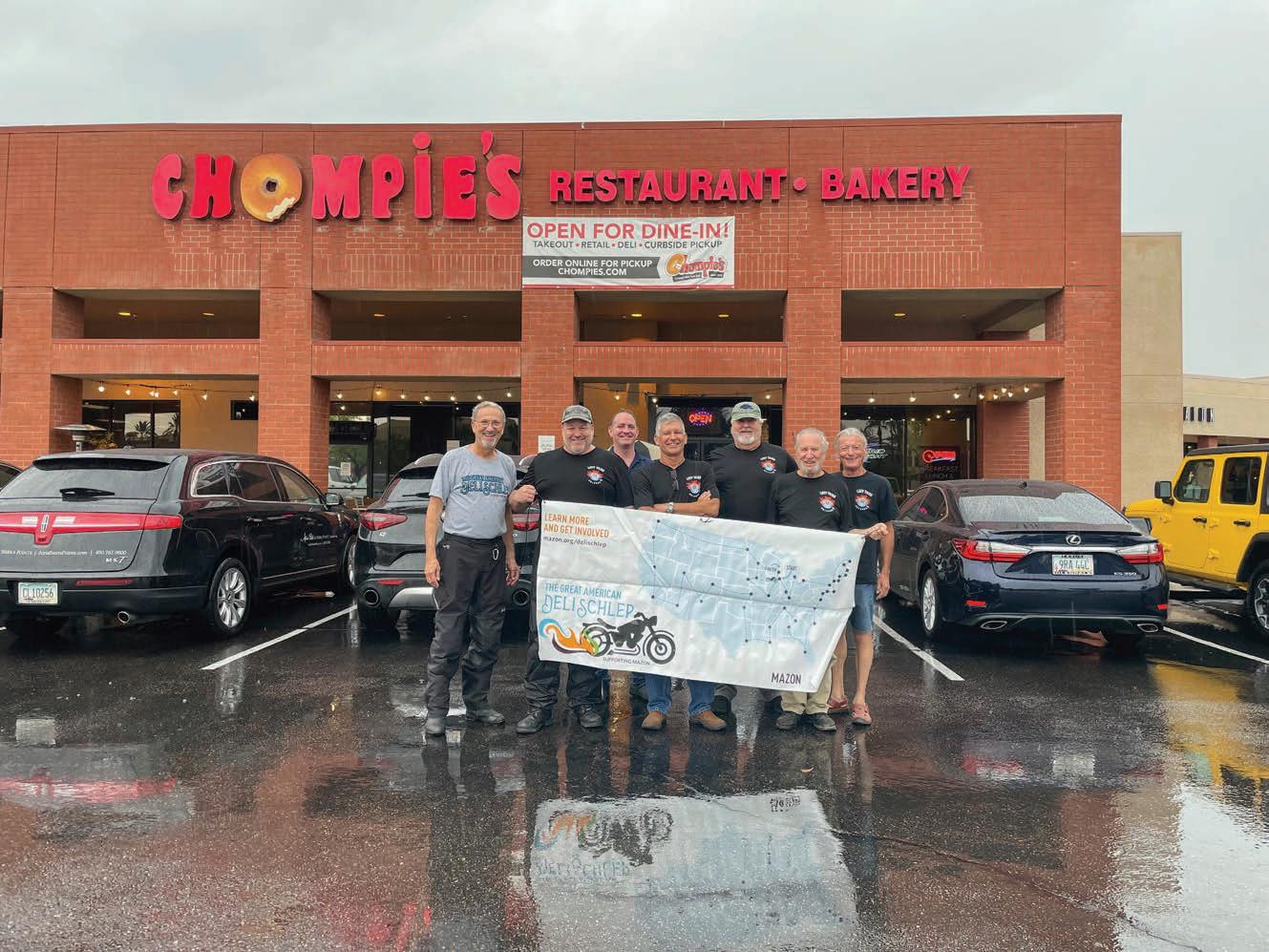
He had been warned about the possibility of Arizona monsoons before he started his trip, but he more or less dismissed the idea.
“It’s basically a sunny place,” he said. Originally, his arrival was set for 11:30 a.m. Thinking it might be 115 degrees by that time, he decided in June to change his scheduled stop to 8:30 a.m. “I didn’t really factor in the monsoons and drop in temperatures,” he admitted.
Still, that morning’s torrential rain, lightning and thunder didn’t keep Goode from his purpose of talking about the reality of hunger in the United States. And a small crowd was there to greet him and listen.
Temple Solel Rabbi John A. Linder, who has become a friend of Goode’s, came out to cheer the project.
“Steve Goode is a mensch amongst mensches,” Linder said, via email. Linder’s inspired by his friend’s long journey and the mitzvah he’s doing by directing tzedakah to MAZON.
Haviv said, “every dime raised is a joy and surprise and wonderful,” but the trip’s real success is the conversation and awareness around the issue of hunger. “People can do some thinking alongside their pastrami.”
Goode insisted that he doesn’t rate the delis, but still some people have argued a little with him that he chose incorrectly in one city or another. He can only respond that he’s just following Nosher’s map.
“It’s a very Jewish thing to go and meet Steve for lunch and argue with him how he picked the wrong deli.” Haviv laughed.
In addition to the mitzvah motive of the journey, it’s also an opportunity for Goode to meet up with other Jewish motorcycle riders. At every deli, members of the Jewish Motorcyclists Alliance, a national network of Jewish motorcycle clubs with names like Star of Davidsons and Hell’s Bagels, have come out to meet with Goode and share stories of the road.

And Chompie’s was no exception. At least five members of Phoenix’s Lost Tribe motorcycle club showed up. David Magat, a Glendale member of the club who’s become a friend, waited out the storm with Goode after the crowd thinned out.
Goode’s only been forced to pull his 2018 Honda Goldwing Tour bike over twice since he started on June 1. While the monsoon surprised him, it’s not the worst weather he’s faced. On an earlier leg of the trip, about 100 miles east of Houston on Interstate 10, he was met with sheets of rain.

“Everybody was slowing down, and I decided to get off the highway because I realized this was not a normal storm — this was a gulf storm,” he recalled.
He turned off the highway onto a frontage road going 20 miles per hour.
He needed to find a hotel room, but his visibility was nil. “I ended up hitting about 12 inches of water,” he said. “The spray on the front went above my head and the balance of the spray rose up to my waist on the bike — just the whole cascading water came up and honestly, I don’t know how I didn’t go down.”
The motorcycle hydroplaned and the spraying water shocked him, but he was able to slow enough to find a nearby hotel. By the time he checked in, his bike and the one car in the parking lot were
Even when riding through terrible weather, he’s never afraid. Traveling by motorcycle, he said, “gives me a certain sense of joy, freedom, meditation.”
This ride, ending Aug. 14, is more constrained and complicated than others he’s done because he has to keep to a schedule of meetings with people and press. But it’s also more meaningful, he said. Even if he’s only “making a little dent” with funds his ride has raised, he’s happy to do his part to highlight the issue of hunger. JN




In a large room on the bottom floor of the Phoenix Art Museum, more than 10,000 8 inch by 8 inch fabric squares line the walls. But they won’t for much longer.
The squares, rendered in equal parts red and blue symbolizing Republicans and Democrats, represent artist Ann Morton’s “Violet Protest” against political polarization. And on Sept. 5, when the exhibit comes down, she and the four Jewish women who make up her project’s steering committee plan to pack them up and deliver them to every member of the U.S. Congress.
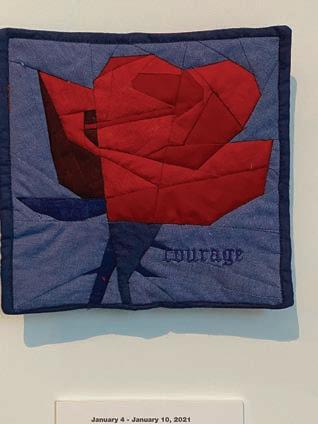
In January 2020, Morton sent out a call on social media and via email for makers across the nation to send her knitted, embroidered, crocheted, needle pointed or woven violet-hewed squares if they believe, as
she does, that it’s time for politicians to come together, put an end to political divisions and work with one another to solve the nation’s problems.
“I’m just tired of political divisiveness,” said Susan Stander, a steering committee member. “It’s time we work together.”
Stander is not alone in her opinion. More than 2,000 people — Democrats, Republicans and Independents — have sent in more than 15,000 squares. Each square represents up to five hours of work, which means there are approximately 75,000 hours of work on display.
But Stander, a retired marketing specialist, isn’t showing her support by knitting or crocheting. Instead, she’s working alongside fellow Jews Beth Ames Swartz, Mitzi Krockover and Laura Roskind to help Morton get the word out about the artistic protest and to contact the hoped-for audience: elected officials.
up, and right now we have enough to give everybody 25 to 30 squares,” Morton said.
Phoenix Mayor Kate Gallego has already visited the exhibit, and the Jewish mayor issued a proclamation declaring April 13 Violet Protest Day.
U.S. Rep. Greg Stanton and State Rep. Aaron Lieberman, both Democrats, have also come. Stanton suggested that the squares should eventually be hung outside congressional offices in a demonstration of unity.
Arizona Senators Mark Kelly and Kyrsten Sinema, both Democrats, have tentatively planned to visit the exhibit in August, as have U.S. Reps. Ruben Gallego, a Democrat, and David Schweikert, a Republican.
“It’s been an exercise in extreme networking,” Stander said.
Krockover is optimistic they’ll be able to achieve their goal once some key people get on board. “We just need a few yeses and the dam will break,” she said. “This is a grassroots project and illustrative of what a democracy can provide. We just want to get our message to our elected officials that we’re tired of the polarization.”
Swartz, an Arizona artist who has known Morton for 15 years, was the person who rallied the women to the project. Her whole life has been about making art with purpose, even power, she said, and this project struck a chord with her due to its combination of aesthetic beauty and social values. She knows in her soul that art can make a difference, she said.
Swartz set out to enlist women who would be as passionate about Morton’s project as she was. It was just a coincidence they were Jewish, but not a surprising one.
“Jews have always been at the forefront of humanistic and compassionate concerns,” Swartz said.
Krockover said she didn’t come on board thinking it was a Jewish group.“It’s really part of our makeup to be drawn to these kinds of projects because they do reflect our values.”
Stander, whose family came to the U.S. to escape Nazi persecution, sees this project as urgent, in part, due to Jewish history.
“As a Jewish person, the threat of
discrimination, fascism, loss of democracy is very frightening,” she said. But she’s hopeful for the future — she said she has to be. “It’s the Jews’ M.O.”
But it’s not only about connecting with politicians, Krockover said. It’s also a community-building exercise.
When she reached out to Visions Art Museum in San Diego, which promotes textile art, they booked Morton to talk about her project in a webinar scheduled for Aug.10.
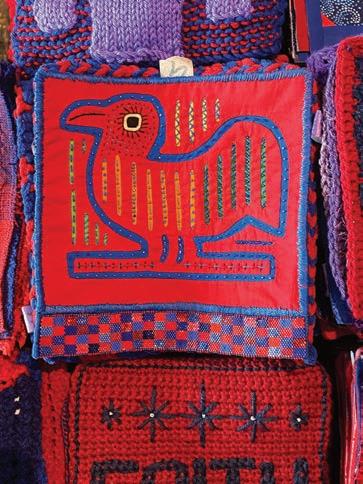
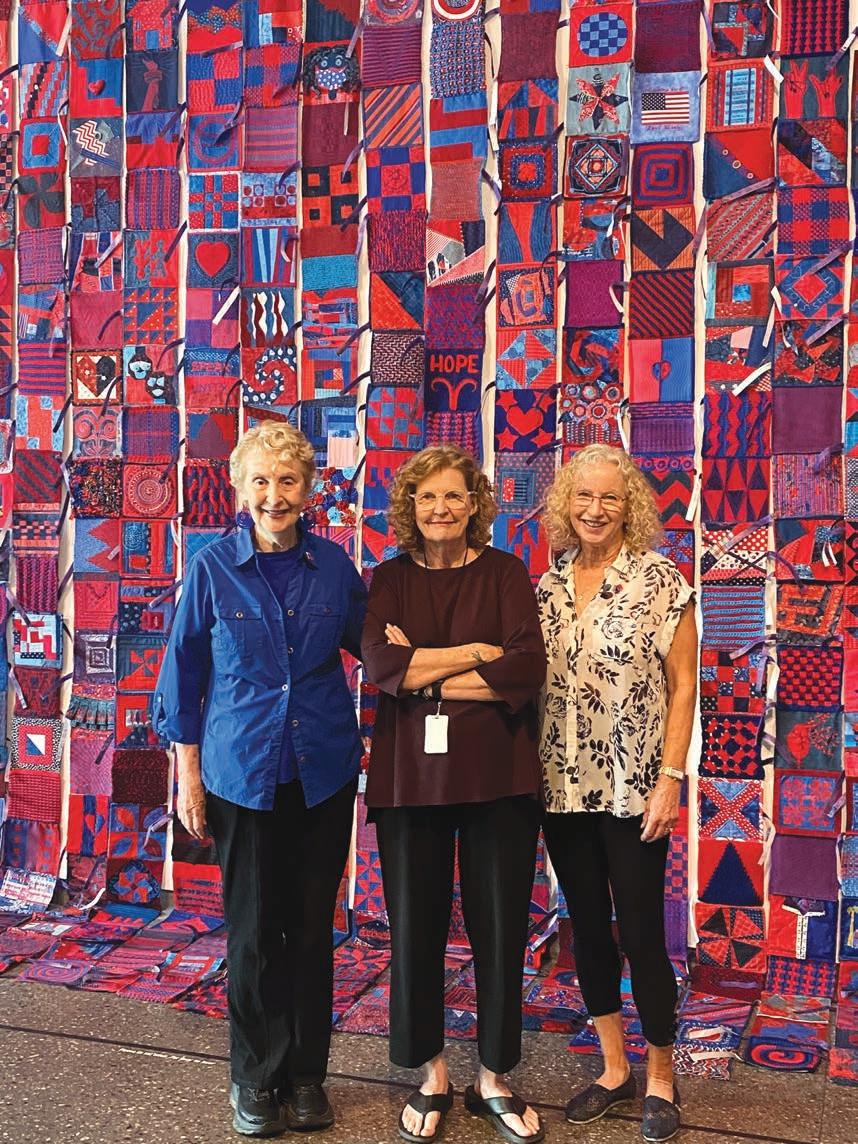
“It’s an example of how things grow organically and how powerfully it resonates with people,” Krockover said.
When Morton initially proposed the project to the museum after winning its 2019 Arlene and Morton Sculpt Artist Award, which recognizes a mid-career Arizona artist, she didn’t know if it would resonate with people. At that point, nobody knew that the coming year would bring a global pandemic and a vitriolic election season. And nobody had yet committed any squares.
But throughout 2020, the project continued to gain momentum.
She gives credit to the museum for taking on a “risky” project. “We didn’t know if people would even respond,” Morton said.
She works mostly in textiles and chose that medium for the project because they “take what would traditionally be considered women’s work and kind of turn that on its head to become a powerful tool for social engagement and social commentary,” she said. And she liked that violet is between red and blue — the only two colors makers could use — on the color wheel.
“It really shows you that when opposites come together, you can create something beautiful — a beautiful representation of hope and cooperation,” said Stander.
Morton, who is not Jewish, doesn’t know how many of the squares might have been created by Jews. She didn’t ask and said it’s not relevant to the project. But she personally has been drawn to several aspects of Judaism, especially the idea of tikkun olam, which she feels is represented in her work.
Swartz seconded that idea. “I love the idea of healing the world,” Swartz said. “It really needs it.” JN





Joy Kerman spent 2020 in transition. The time had come for her to make a choice: Would she continue living on her own or move into a senior living community?
She decided on the latter and moved from Tucson into Phoenix’s La Siena Jan. 20.

“There were so many people around, and there’s a fitness program, and there’s activities, and I keep myself busy,” said Kerman, 77. At least, that was the hope, but large social programs and activities were stifled because of the COVID19 pandemic — until recently.
Over the course of 10 days beginning at the end of June, La Siena held its first in-person, community-wide event since the pandemic began.
In conjunction with the Tour de France, La Siena held a 10-day fitness challenge. Participants aimed to accumulate as many combined miles as possible to compete with 31 sister communities nationwide. La Siena residents could participate in up to four formal spin-
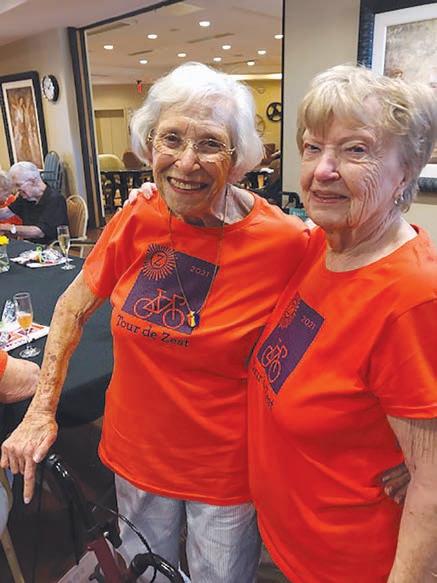

like classes using pedal exercisers; they could also count their steps or miles on the treadmill.
It was just as great as Kerman hoped it would be.
“As soon as everything opened up and I got into this, I thought, ‘I really made the right decision,’” she said.
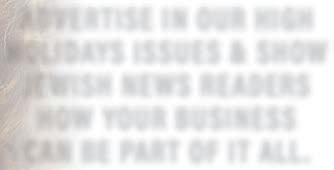

Deborah Wahl, the program — or as La Siena prefers, the Zest — director for the community, said it was nice to return to “that kind of lifestyle and routine.”
Around 40 of La Siena’s more than 150 residents participated, Wahl said.
David Zinder, 85, said he wasn’t motivated by the prospect of winning but had a lot of fun. He participated in two of the spin-style classes.
“I’ve always been a bicyclist,” he said. He got his first bicycle when he was 10 years old in Tucson and he’s been on and off them ever since.
“Staying active keeps me going,” he said. He gets restless when he sits.
Fran Garner, 86, also wasn’t motivated
These are what make the High Holidays so important. This season, families will reflect on the past and begin the journey of moving forward into a sweet new year.

by the competitive aspect but enjoyed going to three of the classes and being social.
“There was a lot of camaraderie amongst the people who were doing it and we all just had a really good time with it,” she said.
Pam Shedd, a former cross-country tour leader who has crisscrossed America on her bike over 15 times, led the classes.
“Pam just has so much energy and zest and just makes everything fun,” Garner said.
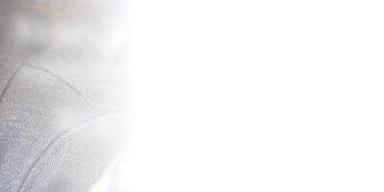

Shedd brought her bike and pedaled with participants in her biking gear and got people excited about the actual Tour de France, in which Arizona native and professional cyclist Brandon McNulty competed for the first time.
“She could give a blow-by-blow every day. ‘Oh, that’s so-and-so and that’s such and such and kept stats up on him, so it added another layer to this whole thing because she had all that knowledge,” Wahl said.
Shedd also held a closing finishline ceremony that included French champagne “because that’s only fitting,” Wahl said.
La Siena ended up coming in seventh in the competition, which Kerman felt “was pretty darn good.”
The pandemic took a toll on the senior living community.
“Our job was really to keep their spirits up,” Wahl said, noting visitors were not allowed on campus at one point. She said staffers did one-on-one visits and helped residents learn how to use Zoom and email.
She and her team hustled to find things to “keep everybody happy,” but they made it through.

Zinder felt La Siena handled the
pandemic “very well” and felt safe. “We were pretty well locked in.”
Residents could leave the campus but would have to be isolated for several days after, and in some cases, for a couple weeks, depending on where they were. Though Wahl said precautions looked different at different times as the pandemic progressed.
Now that the pandemic is in a stage that allows for in-person gatherings, Wahl said she has a full roster of activities planned.
“We don’t just throw programs out there and say, ‘Oh, well this might work.’ We really, every month, try to find things that will engage them in either their minds, their bodies or through what we call a soul activity,” she said. JN


amount of work for JNF and she’s very positive so her outreach to the community is a very positive force for Israel. She’s also a strong advocate and a terrific mouthpiece for why supporting Israel is so important.”
Randi Jablin, board member for Jewish National Fund-USA’s Desert States, was recently awarded its Board Member of the Year award.

Jablin has served on JNF-USA Desert States’ board since 2013. Desert States serves all of the national organization’s members in Arizona and Nevada. JNF-USA is a philanthropic organization for Israel that supports environmental and nation-building activities in Israel.
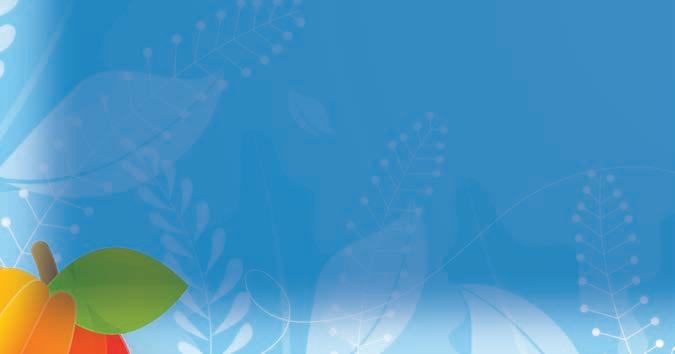

One of Jablin’s recent accomplishments was gathering support for a bomb shelter beautification project in the Negev.




Jablin, whose first trip to Israel was in 1984, said she was honored to receive the award. “I have a strong, deep love for Israel, which started with my first trip. Supporting the land and people of Israel is one of my greatest passions, and I’ve gotten so much out of my involvement with JNF-USA.”
Deb Rochford, JNF-USA’s national campaign director, said that the Desert States board is lucky to have Jablin. “She does a tremendous



Rochford added that a lot of people will donate money, but Jablin is different in that she leads by example. “Not a lot of people roll up their sleeves and lead the way like Randi.”
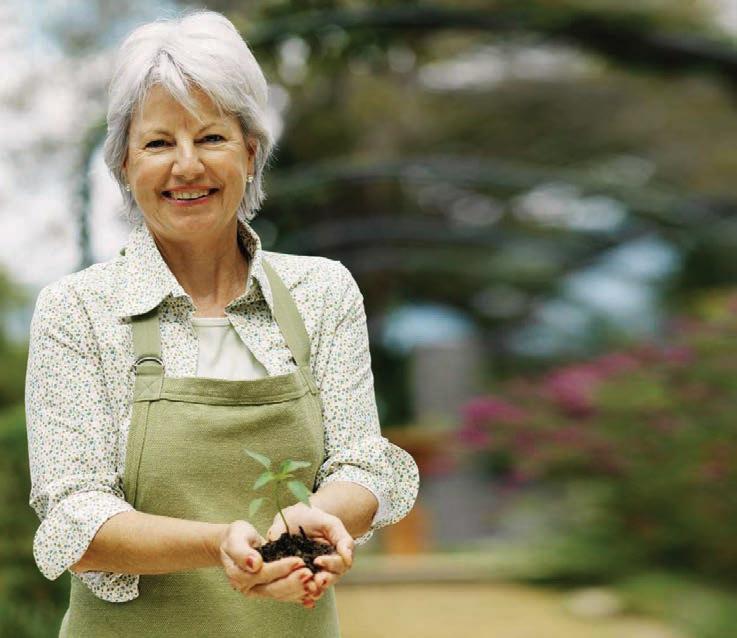
Jablin is also a major supporter of JNFUSA’s High School in Israel and its semester abroad in Israel program.
“Getting young people to Israel is vital, and I know how much good the High School in Israel Scholarship program does in sending the next generation of leaders on a life-changing trip to Israel,” said Jablin. “People who haven’t been to Israel just don’t know what they’re missing, and this is a great way to help get as many young people there as possible.”
JNF-USA Desert States President, Kim Kotzin added: “Randi Jablin is an exemplary board member. A Jewish leader in our community, Randi’s support of JNF-USA extends beyond her board member responsibilities. She is deeply connected to Israel. Randi understands the significance of a strong Israel and volunteers her time to educate our community about the work of JNF-USA.” JN
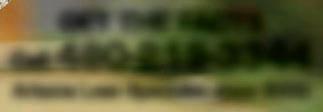
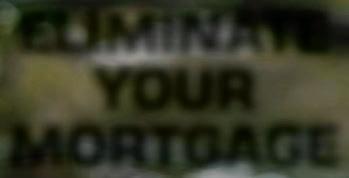

Ten minutes before a virtual tour of the Musical Instrument Museum was to begin in The Palazzo’s Cinema Room, it seemed like the regular seating capacity of 28 chairs would be enough.
It wasn’t.
“People just kept coming,” said Janet Arnold Rees, senior concierge and creative aging coordinator for Jewish Family & Children’s Service. The Tuesday, July 13 event was the first in-person program for JFCS’ Senior Enrichment Center since the pandemic began. Rees knew people would be happy to return in person and she and Jennifer Brauner, SEC’s director, decided it was finally time.
“I need that energy from people,” Rees said. “People need to laugh together and experience things together — we’re a community.”
The Palazzo in Phoenix, a senior living community, is where Brauner hosted events pre-COVID, and the event there was billed as “a fabulous day” combining the “best of both worlds: virtual and live.” It began at 11 a.m. with MIM’s virtual
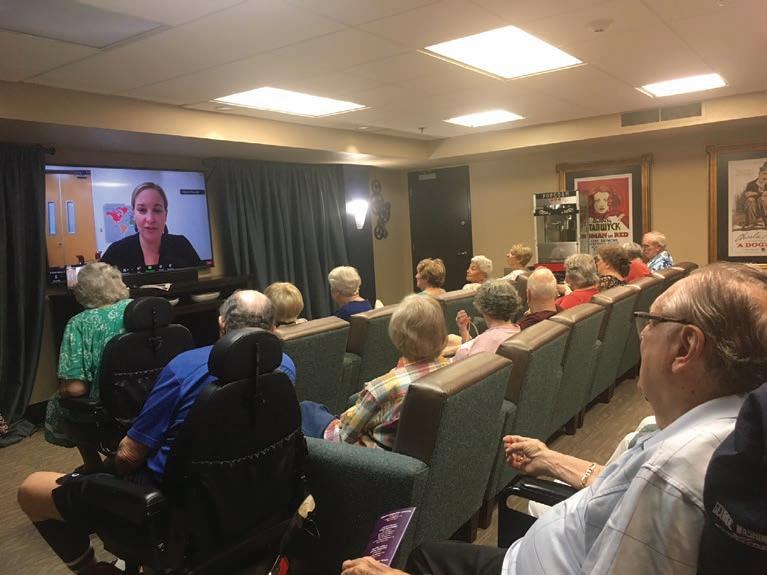


tour focusing on jazz. Although the event was on Zoom, Rees said the presenter kept it interactive by throwing out questions to the audience, ensuring she held their attention.
Carol Janoff knew MIM’s presentation would be good. In her view, the museum always does a good job.
Janoff lives in her own home and came to the event alone. She’s been doing a few things in person and feels pretty good about it. So when she received JFCS’ email she didn’t hesitate since she was pretty sure most people would be vaccinated.
More importantly, “I haven’t been out to lunch for I don’t know how long,” she said.
The lunch that followed the tour was a good deal, Rees said. The Palazzo charged $5 for three courses.
“It was a full plate of food, too,” said Janoff. One person even brought a container to carry away a portion for a second meal. Janoff isn’t usually comfortable talking to strangers, but at the small lunch table she felt at ease chatting.
get out and have a fun social event where I’m not worried about things,” she said.
Following lunch, musicians Craig Bohmler and Rusty Ferracane provided live entertainment, and for that even more people poured in, said Rees. She had to keep bringing in more chairs.
“My jaw was dropping,” she said. “It was spectacular.”
Ferracane sang a host of songs familiar to the audience, like “If I Were a Rich Man” and “Somewhere Over the Rainbow,” while Bohmler accompanied on the piano. The duo are longtime friends of Rees.
“When he sang “The Impossible Dream,” tears came to my eyes,” Rees said.
Dorothy Blumstein, a resident of The Palazzo, couldn’t help but dance along. “You couldn’t sit still. You had to move with the music.”
The audience tapped their toes, snapped their fingers and gave the musicians a standing ovation, Rees said, which is notable given that some of the audience have mobility issues. “I was on a high and still was the next day.”
performed since COVID began. They didn’t do Zoom because they didn’t feel they came across well, Rees said, and “for performers not to have an audience for a year and a half is devastating.”
The day ended with ice cream sundaes. “It was nice that the performers stayed and chatted and had ice cream with us,” Blumstein said.
She participated in many of JFCS’ virtual programs, but is very excited to have Brauner organize in-person events at The Palazzo once again.
At least 14 non-residents came, which Rees said was a pleasant surprise. She felt the program went smoothly and the staff was wonderful, something many attendees pointed out. Non-residents and all staff members for The Palazzo wore masks, but the residents, who are vaccinated, didn’t have to.
Now that the first in-person event went so smoothly, Rees is looking forward to the next one. “There was such a vibe of excitement,” she said. “Thank God we can do this again.” JN




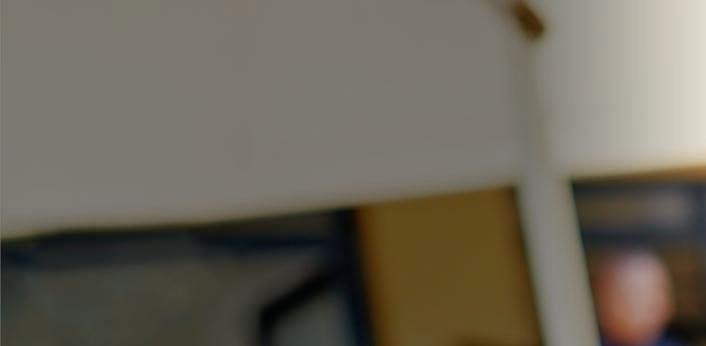
 BOB ROTH
BOB ROTH

wo weeks ago, on July 18, our 85-yearold father began having weakness that completely sapped him of his energy — he could barely move. Less than 24 hours later, we called 911 as his weakness led to a fall. We thought this all could be connected to a cardiac issue. He had a complete work-up at the hospital, but his doctors couldn’t figure out the problem. Then, 16 hours after entering the emergency department, the results of his COVID-19 test from the day before came back positive.
How could our father get COVID when he was vaccinated? He had his second of two vaccinations in early February. We could never imagine he would be one of the COVID breakthrough cases. These events are considered rare for fully vaccinated people. But how rare are they?
As we started to review our father’s recent health challenges, it wasn’t too difficult to figure out what had happened.
TOur dad was prescribed a three-week course of oral steroids to address what we thought was a psoriatic arthritic event. While the medication took away many of his aches and pains, we learned later that the drug suppressed his immune system, leaving our father with virtually no antibodies or protection from the virus.
This health event precipitated our daughter, Samantha-Jo (Sami-Jo) Roth, a reporter in Washington, D.C., to look further into this issue. She reported in Spectrum News that there’s growing evidence showing certain medications could compromise COVID vaccines' effectiveness.
Dr. Aftab Khan, a physician who practices internal medicine in Florida, said immunocompromised patients taking drugs like oral steroids may compromise the vaccine’s effectiveness, making it a “very dangerous situation for them.”
In addition, he said, “if you’re going to prescribe someone steroids, you have to tell them and you have to warn them that they can lower your immune system and you have to take extra precautions.”
Scientists still don’t have a full picture

on how these drugs affect the vaccine’s effectiveness, but the evidence is growing. Individuals who are immunocompromised should be concerned. They are at a higher risk for negative outcomes if infected with COVID, and they are less likely to experience an adequate response to the vaccine. Individuals who are taking immunosuppressive medications should be equally concerned. They need to limit their exposure to the general public during their medication regimen so that they do not get infected. I encourage you if you are either immunocompromised or about to take or presently taking immunosuppressive medication to seek advice from your primary care physician. The more contagious delta variant is taking hold of our country and the numbers are rising. Federal, state and local governments are once again re-evaluating mask mandates. We see private businesses, like hospitals, mandating vaccinations and the federal government considering mandating vaccinations for its employees. And there is a new variant, lamda, which has the Centers for Disease Control and Prevention concerned.
After spending eight days in the COVID ward at HonorHealth, our father is at home recuperating and regaining his strength. The care he received was extraordinary -— the nurses, the doctors and staff were amazing. His physicians tell us if he had not been vaccinated, he certainly would not be with us today.
COVID vaccines are the way we will end this pandemic. In order to accomplish this, scientists say we need at least 70% of our population to be vaccinated. But we still have a long way to go. We are still unsure exactly how our father became infected with this virus.
One thing is certain: The more people who get the shot, the safer it is for our father. If you’re on the fence about getting vaccinated, please think about those who are immunosuppressed and are left defenseless to this virus. You will not only be protecting yourself, but you’ll also be doing your part to protect people like our dad. JN
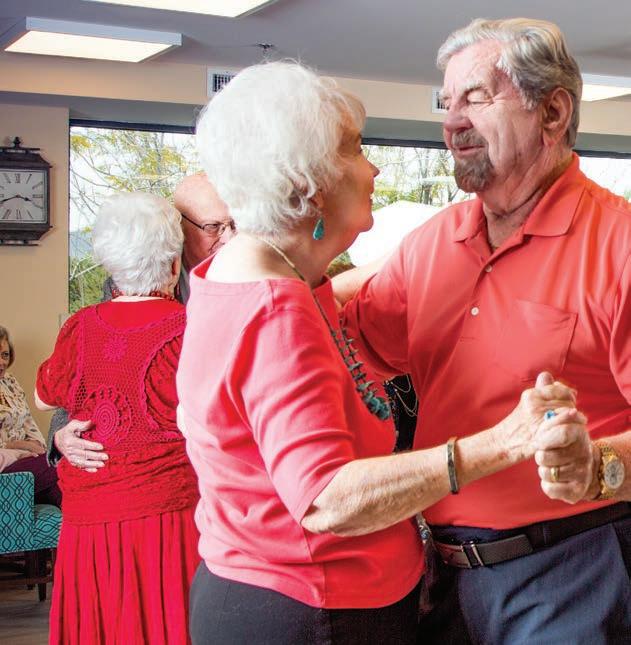





We applaud President Joe Biden’s announcement last week naming Deborah Lipstadt as the State Department’s special envoy to monitor and combat antisemitism. The selection of Lipstadt is widely recognized as a good one — even if many are concerned that it took the administration far too long to make the appointment for this increasingly important and sensitive position.
Lipstadt’s qualifications are impressive. She is a renowned Holocaust scholar and a professor of modern Jewish history and Holocaust studies at Emory University. For decades, she has been a go-to expert on issues relating to the Holocaust, and has established herself as a credible and thoughtful voice on antisemitism.
Until now, Lipstadt may be most famous for being portrayed by actress Rachel Weisz in the 2016 movie entitled “Denial,” a film that recounted the story of Lipstadt’s 1996 defense in an English court against a libel charge
for calling Holocaust denier David Irving a Holocaust denier. Lipstadt won that case and went on to write “History on Trial: My Day in Court with a Holocaust Denier.”
Lipstadt’s reputation and expertise make her a solid choice for the special envoy position. She has the gravitas and the experience to elevate the office, and is a trusted and thoughtful voice. She has the courage necessary to call out antisemitism and will doubtless bring those strengths to her work of tracking and reporting on antisemitism abroad and lobbying governments to address the issue.
Nonetheless, we remain troubled by the administration’s delay in making the special envoy appointment. The continuing rise in antisemitism, in the U.S. and abroad, needs to be addressed with the full support and prestige of our government. The delay in the special envoy appointment raises questions about the intensity of the administration’s concerns about antisemitism, and with that, sensitivity
to the concerns of our community.
Going forward, the administration has a clarifying opportunity. The important position of White House Jewish liaison remains unfilled. The Jewish liaison acts as a point person between the Jewish community and the White House — serving as the administration’s voice to our community and the person charged with gathering consensus on issues that affect our community.
The Biden administration has promised to name a liaison but has not yet done so. We urge the prompt selection of someone with similar experience, knowledge and reach that Lipstadt brings to her position, rather than a more junior, entry-level staff person, as has been rumored. The selection of an experienced and respected liaison will elevate the dialogue between the White House and our community, and will send a clear message that the Biden administration takes the Jewish community seriously. JN
Over the past several weeks we have seen reports that Israel spyware firm NSO Group’s Pegasus technology was being used for more than the monitoring of terrorists and other bad actors. We learned of allegations of the technology’s use against journalists, opposition figures and critics of authoritarian rulers in Saudi Arabia, Rwanda, Kazakhstan and elsewhere.
And in each story, it seemed that the State of Israel itself was being singled out as the chief culprit, rather than the company that actually sold the technology. The reality is, however, that with Pegasus-like highly specialized and sensitive technology, “the government” has to sign off on its licensing and transfer. That’s as true in the U.S. as it is in Israel.
Israeli spyware companies are an integral part of a highly specialized and competitive international industry. Indeed, the Pegasus story is another chapter in the everexpanding Startup Nation epic, in which Israel transformed within just a few generations from a poor, beleaguered state to a technological
powerhouse, able to punch well above its weight in the international market.
We take pride that Israel is among the most developed, advanced and productive countries in the world in the highly sophisticated hi-tech space. And as a major player in that world marketplace, Israel has an opportunity to help lead in the development of meaningful standards for international governance of the industry.
As recently explained in a Jewish Insider interview by Rep. Tom Malinowski (D-N.J.), the vice chair of the House Foreign Affairs Committee and a former assistant secretary of state, the industry is largely unregulated. As a result, there was nothing “improper” about the NSO sales. But, as Malinowski said, that’s exactly the problem: “I’ve been concerned for some time about the completely unregulated ‘hacking for hire’ industry that has emerged in recent years. The NSO Group is just one example. This is not really a story about one company from one country,” he said, adding, “What the NSO Group did was perfectly legal.
My point is that it shouldn’t be. And that’s on us to fix.”
Further, Malinowski said that “Much of this technology is the product of collaboration between intelligence and national security agencies in Western democracies and private industry. My argument is that that’s where it needs to stay. The United States needs to get together with our allies and put in place some rules to ensure [that the improper release of sophisticated military grade technology] can’t happen again.” He called on the United States to lead the change.
We agree. And we encourage Israel to join in the effort.
Israel has graduated to the “grown-ups table” for discussion and consideration of sensitive, international hi-tech business issues, and is in a unique position to contribute meaningfully to the regulatory discussion and its practical implications. The Pegasus story is a wake-up call. We look forward to the thoughtful development of protocols and procedures to codify standards for the future transfer of sensitive technology. JN
With regard to Nicole Raz’s article, “Holocaust education bill a done deal,” in the Jewish News, like so many in the Jewish community of Arizona, the Board of Rabbis of Greater Phoenix was tremendously pleased to see the passage of the Holocaust education mandate in the Arizona legislature. We are grateful to the parties who worked diligently and invested great effort to bring this important legislation to fruition. We honor and celebrate the achievements of those at the Phoenix Holocaust Association and Arizona Teaching the Holocaust initiative, among many others, who fought to get this important mandate passed to ensure that Holocaust education will be part of the curriculum in Arizona’s schools, so that both survivors’ legacies and the lessons of the Holocaust itself, will inspire future generations to goodness, compassion and justice. We especially commend the work of Holocaust survivors here in Arizona who came out to advocate for the bill’s passage.
There were parties who desired different legislative outcomes on this matter. While the Board of Rabbis is not in a position to make legislative pronouncements, we will weigh in on concepts of machloket in our community. We recognize that the various parties involved acted from a sense of wanting to do what is best for the community; there was heated, passionate debate over the best way to safeguard those interests. As the mandated Holocaust education bill headed to the governor’s desk for signature, we acknowledged our shared connection as part of Am Yisrael and deep desires to serve the best interests of Klal Yisrael.
Rabbi Bonnie Sharfman, president of the Board of Rabbis of Greater Phoenix
Paul Boyer does not speak for the Jewish Community. His posture as self-anointed defender of “the Jewish people” criticizing the Holocaust education bill was presumptuous and hypocritical.
Boyer’s insistence that the International Holocaust Remembrance Alliance definition of antisemitism be included in the bill defies 13 local and national Jewish organizations, including NCJW AZ, that urged this definition be excluded. He refused to listen.
Further, Boyer hypocritically hurls false accusations of antisemitism at the ACLU and Rep. Athena Salman, a supporter and honorary member of NCJW AZ, who shares our view that the IHRA definition of antisemitism should not be codified into law. Where is his criticism of Rep. John Filmore who compared masks to the tattoos on the arms of Holocaust survivors? Where is Boyer’s outrage over Sen. Sonny Borelli’s comparison of mask mandates to the requirement for Jews to wear yellow stars?
Where is his condemnation of U.S. Rep. Paul Gosar who cozies up to white supremacists or Rep. Wendy Roger’s antisemitic comments?
If Boyer cares about the Jewish community, he should denounce antisemitism within his own party instead of attacking those who defend our rights and freedoms every day.
We are a diverse community. The views expressed in the signed opinion columns and letters to the editor published in the Jewish News are those of the authors. They do not necessarily reflect the views of the officers and boards of the Jewish Community Foundation, Mid-Atlantic Media or the staff of the Jewish News. Letters must respond to content published by the Jewish News and should be a maximum of 200 words. They may be edited for space and clarity. Unsigned letters will not be published. Letters and op-ed submissions should be sent to editor@jewishaz.com.
Across the globe, people from all walks of life came together Monday, the 17th of the Hebrew month of Menachem Av (July 26) to mark the one-year anniversary of the passing of my beloved mentor, Rabbi Adin Even-Israel Steinsaltz of saintly memory.
Steinsaltz, lovingly known to his students as Rav Adin, was recognized as a “once-ina-millennium scholar,” who revolutionized the world with his trailblazing translation and commentary of the entire Talmud, Bible, Maimonides’ Mishneh Torah, the Tanya; his authorship of many books on Jewish mysticism, philosophy and sociology; his educational institutions; and his life mission to “let my people know.”
Personally, I miss Rav Adin terribly. For close to 30 years, my mentor and I spoke regularly. He guided my every step, illuminated my every pathway, molded my every thought and inspired my every action. And now, ever since his passing a year ago, our world is so much dimmer, and our lives so much lonelier.
Nonetheless, and in spite of the profound pain and streaming tears, his spiritual presence continues to permeate our beings, his sweet voice continues to ring in our ears, his eternal teachings continue to lead our every way and his marching orders continue to propel us to “do
more and more and more,” his parting words to me, just two weeks before his passing.
To encapsulate the genius of Rav Adin in words is impossible. Still, here is a humble attempt to provide a glimpse into 10 lessons of our beloved Rav Adin that changed my life and brightened our world:
A few years ago, during a visit with Rav Adin, I asked him, “in your eyes, what is life’s most important question?”
Without skipping a beat, he replied, “and then what?”
He then explained his statement. “You see, it is easy to fly into a passion. But what happens after the passion is gone? And then what? What is left from that which we were so passionate about? Weddings nowadays resemble Hollywood-style sound and light shows. But then what? Can our marriage continue to grow even when the sound of ‘Here Comes the Bride’ has been replaced with the sound of a baby crying? Can our love continue to blossom, even when the romantic scene of ‘you may kiss the bride’ has been replaced with the unavoidable reality of bills that need to be paid?”
Seven billion people will care about your actions, not your feelings
Rav Adin once called me aside after noticing my despondence during my years of study at his Makor Chaim high school in Jerusalem.
“The problem is that you focus on your
feelings too much,” he mentioned. “Maybe that’s why you seem so despondent.”
“So, what should I do?” I retorted.
“Instead of focusing on your emotions, focus on your deeds,” he replied.
With his characteristic wit, he concluded: “Remember, only your mother truly cares about your feelings, but 7 billion people will care about your actions — so focus more on your good deeds, each and every day.”
The difference between a wise man and a fool
A few years ago, Rav Adin asked me a question: “What do you think is the difference between a fool and a wise man?”
I did not know what to say. So, he replied in my stead. “The difference is simple: A wise man keeps the important issues of life important and makes sure that the trivial issues remain trivial. The fool does the opposite. For him, important issues become the trivial ones, while he considers the trivial issues to be important.”
Focus on the results, not so much the process
Following the failure of a project that I had launched a few years ago, I called Rav Adin to express my frustration and seek his advice.

After listening carefully, he replied with his characteristic smile, “Pinny, you focus too much on the results. But you forget that you were appointed to work, not to reap the fruits of your work. It sounds like you put in the right amount of work and that you did what you could. Now, let G-d take care of the results…”
“It’s like planting trees,” he said. “Sometimes, we plant a tree, and we think that we’ll be able to enjoy its fruits within a year or two. But some trees, like the olive tree, take a few years to grow and produce fruits. Yet, once those trees grow, they turn into very strong trees that then never stop producing an abundance of fruits.”
Ask not “How much have I accomplished?” ask “How much more can I still accomplish?”
In an unforgettable address to our tenth-grade class, Rav Adin stated: “The main problem is that you ask yourself ‘How much have I accomplished thus far,’ instead of asking yourself, ‘How much more can I accomplish?’”
You see, it’s not that the sky is not the limit. Rather, the sky is the launchpad of your life. Doing your best is not good enough. I know this may not sound like a recipe for an easy and comfortable life, but it is my expression of great hope. And it comes from my belief that people do not just have stomachs, they also have wings with which to fly.
I would want for my students to take upon themselves what may seem like an undefined resolution, yet it is, nonetheless, very concrete. I would call this resolution “one step forward.” Wherever you are in your life journeys, please, I ask you, take one step forward.
A few years ago, I asked Rav Adin, which of his 80 plus books was his favorite. His answer
SEE ALLOUCHE, PAGE 11
LUKE BERRYMAN | JTA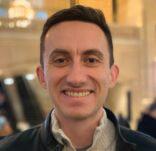
“Hey, I did have one question …” That was the tentative ºpening to an email I recently received from a high school teacher. The Ninth Candle, the Holocaust education organization I founded, had led some educational programs for her students, and the teacher and I had been trading emails for a few weeks.
Even teachers at schools with established Holocaust programs can be reluctant to get too close to the big questions about it. I sense a widespread but unspoken fear of being called insensitive or offensive — or worse, antisemitic. She only asked me her “one question” after a relationship had begun to form and she had my repeated reassurance that nothing was off the table.
And the question?
She wanted to know if the Nazis had used human fat, rendered from Jewish prisoners, to make bars of soap. The class materials she’d been given said they had. She doubted the claim but was too afraid to challenge it.
The answer is no, they didn’t. Despite the teacher’s apprehension, it was
perfectly reasonable to ask.
This teacher shared more of her class materials with me as our exchange went on. Along with the “soap myth,” which academics are still untangling, there was a mess of small but significant factual errors: chronology, place names, victim numbers. We soon realized that Holocaust education at her school, like at many schools across the country, needed to be overhauled. A recent study revealed that our knowledge of the Holocaust is declining. Most millennials and Gen Z members surveyed don’t know that 6 million Jews were murdered during the genocide, and half of those surveyed can’t name a single concentration camp or ghetto. Meanwhile, antisemitic incidents are surging.
One of the first things we can do to improve the situation is to uproot myths from our curriculums. This will involve discussing all those difficult questions. We also need to keep class materials updated because our knowledge of the Holocaust is still evolving. (The U.S. Holocaust Memorial Museum is a good source for teachers who want to make sure their lessons are up to date.)
Take the soap myth. Rumors that the Nazis made soap from Jewish prisoners emerged before World War II was over, and evidence to
support them was presented at the Nuremberg Trials. In the 1980s, historians discovered that the issue was more complex than first realized, and their investigations continued into the 21st century.
We now know that the Danzig Anatomical Institute’s preparation of corpses made a soapy byproduct used to clean the institute during the final months of the war. The corpses weren’t Jewish, and no bars of soap were ever made. But Allied and Soviet propaganda, and pop culture works like Zofia Nalkowska’s 1946 book “Medallions,” inflated the institute’s disrespect for the dead into something even worse.
There are many other examples of our knowledge of the Holocaust improving over time. But such changes don’t always make it into curriculums and schools.
This is partly due to Holocaust education’s dependence on pop culture, with its liberal use of works that deliberately blur fact and fiction. Schools commonly choose to include books and movies like “Schindler’s List,” “The Boy in the Striped Pajamas” and “The Tattooist of Auschwitz.” But these works aren’t useful teaching tools. They treat the Holocaust as a game of cat-and-mouse, Jews as an interchangeable mass who went to their deaths
unthinkingly and survival as a matter of attitude. In addition, there are so many advocacy groups putting free, one-size-fits-all Holocaust lesson plans on the internet now that some schools and teachers barely know where to begin.
For students, pop culture’s repetitive, twodimensional treatment of the Holocaust makes it difficult to think about it critically, or to feel empathy for its victims, or to connect it with the present — especially if that’s where one’s Holocaust education begins and ends. (More than 30 U.S. states still have no mandate that the Holocaust be taught at all.) Folding more cases of resistance into Holocaust curriculums is one way to address this. I’ve seen students’ relationships with the subject change when light is cast on the uprisings in Auschwitz, Sobibor and Treblinka, or on resisters like Alexander Pechersky and Zivia Lubetkin.
Another way is to study the Holocaust alongside Nazi Germany’s “forgotten victims,” as the historian Richard J. Evans calls them: the Roma and Sinti peoples, gay people, people with mental and physical disabilities and Slavs, among others. Students often connect with books that reach imaginatively beyond the settings of camps and ghettos.
LizaSEE BERRYMAN, PAGE 11
The Holocaust is exaggerated in pop culture. That makes it hard for educators like me to teach the truth.
and the eve of Rosh Hashanah.
The prophet Amos asked, “Can the shofar be blown in the city and the people not tremble?” (Amos 3:6) In ancient times, the shofar was a call to war, a call to action.
“be inscribed and sealed for a good year.”
Once upon a time, you walked by a store and saw a sign: Closed for inventory. Once a year, storekeepers took stock — counting how many items they’ve sold, how many are still on the shelves and what profits and losses were incurred during the past year.
Once they took proper inventory, they had the correct company information available to file proper reports with the government, banks and other institutions.
This coming week begins “inventory time“ in Jewish life. It’s the beginning of the month of Elul, the month preceding the high holidays.
This month brings with it many unique customs, which are meant to put us in the mood for introspection, jolting us out of our slumber and complacency.
The alarm clock of Elul is the shofar, blown every morning except for Shabbat
ALLOUCHE
CONTINUED FROM PAGE 10
baffled me, and it taught me volumes on how to appreciate the now.
“It is the book I am working on right now,” he mentioned.
Similarly, Rav Adin once lamented the mindset of many in our generation who focus so much on the future that they forget to live the present.
“We devote so much time to the ‘before’ and ‘after’ that we no longer have time to experience the thing itself. When we are in the before stage, we think about what will be; in the after stage, we think about how things were. Either way, there is nothing to make us hold on to the present. But the focal point of our thinking is not life for the sake of the morrow but rather life today. What matters now is what is now.”
On a late afternoon in 2001, I was visiting a Jerusalem hospital when I suddenly bumped into Rav Adin in the hospital’s elevator.
“Good afternoon, Rav Adin,” I greeted him. “What are you doing here?”
“I’m going to study the Talmud,” he replied with a playful smile.
“To study the Talmud? In this hospital? Are there no better places to study?” I retorted. His wise response still reverberates in my mind: “Well, the doctors here have to connect me to a dialysis machine for a few hours, and in the meantime, I’ll study the Talmud.”
At that moment I had learned that my beloved mentor suffered from a genetic condition called gaucher from a very young age, which required him to be connected to a dialysis machine each and every month, for
Aside from its yearly use on Rosh Hashanah and at the closing service of Yom Kippur, it is also the one sound Jews have longed for endlessly, for it will herald the arrival of the Messiah and the ultimate redemption.
That we may hear the shofar sounded and not tremble does not denote a lack of power on the shofar’s part to influence us, but rather our insensitivity to its message: “Wake up, you sleepers from your sleep, and you who slumber arise from your slumber. Search your deeds and return in penitence.”
(Mishneh Torah, Hilchot Teshuvah 3:4)
The shofar is the air raid siren for the soul, though we must attune ourselves to it.
The world may have switched from paper to digital, however it’s an age-old Jewish custom that during the month preceding Rosh Hashanah, when we see or write to friends or acquaintances, we wish that they
approximately three hours. But what stunned me most is not the fact that he never shared this with me and his close students. Rather, it was the idea that Rav Adin never saw this monthly medical treatment as a challenge. For this giant of a man, it was an opportunity to study the Talmud for three hours, without interruption. And even as his disease threatened to limit him, he felt free and limitless.
His approach taught me an invaluable lesson for life: We all face challenges, big or small. We all suffer from diseases, physical or mental. We all endure pain, temporary or permanent. But it is the way we choose to address them that makes all the difference.
Don’t just say thank you, do thank you I recall how my beloved mentor, who despised flowery words and superficial shows, once told me that “the world would be a much more beautiful place if people would do thank you, instead of just saying thank you.”
When I asked him what he meant, he replied, “say you just gave a poor man some money. Now, if he is polite, he will probably say, ‘Thank you.’ But, imagine if this poor man would learn from you and, in return for your act of kindness, he would also do a good deed. Wouldn’t that help our world much more than his words of gratitude?”
The power of a smile
Rav Adin once shared with me that when he was a 7-year-old boy, he found himself in an overloaded bus, surrounded by a group of beautiful girls, who were just a few years older than him.
His words were so sweet. “As I was observing them as a phenomenon of nature, one of these girls turned to me and gave me a big smile. I had never seen such a beautiful smile. I remember
This reminds them and us that these are days of judgment, when a reckoning of our heavenly accounts is taking place — the time we ask that heaven have mercy on us and our family. Let us remember to include a request for compassion and mercy for our friends, neighbors and our people.
Elul is the time when we especially try to increase and enhance our performance of mitzvot.
Just as we would examine the shelves in our shop and business and take a proper inventory, we must do the same with our Jewish inventory.
We must consider what losses and damages others have incurred due to our actions or inactions. Do we really have all the good deeds in store that we think we have? What mitzvot must we stock or restock for the coming year?
When taking your Jewish inventory, there is no reason to close shop. There is always more to do.
Here are some practical things you can do to make your pre-holiday experience
thinking to myself that it felt like I was walking on a dark street when, all of a sudden, a ray of dazzling sunshine came out.
“I don’t think that this girl and I ever saw each other again. But I will never forget her smile. And I will never forget how this beautiful girl came out of her circle, to brighten a little boy’s day with the unique gift of a smile that G-d had blessed her with.
“Sometimes, that’s all it takes to fulfill our purpose: to smile at someone else, with our own unique smiles. Try it. You won’t regret it.”
In 2014, I had the privilege of escorting Rav Adin to a conference in Chicago. There, he was asked about his view on achieving happiness. His words of truth still reverberate in my mind: “There are so many people all over the world that are searching for happiness, but they don’t really know what they want because they can’t define happiness.
“But we forget that happiness is a form of self-fulfillment. When a person does what he has to do, what he should do — not necessarily what he wants to do, because what I want to do is, possibly, to sit and do nothing — then he has a sense of fulfillment, and that engenders happiness. And to achieve fulfillment, I have to be in agreement and fully in tune with my unique purpose and with what I am supposed to do — sometimes as a husband or a parent, or a worker — whatever that may be.
“So, if we wish to be happy, we first ought to be listening to that small, thin voice inside of each of us, which tells us what we are uniquely supposed to do.” JN
more meaningful:
• Purchase a book connected to the High Holidays.
• Attend a pre-High Holiday class.
• Increase in prayers.
• Give extra charity every day.
• Study Torah, especially Jewish mysticism, explaining the High Holidays.
• Focus on redemption, because being the last month of the year, it is one of hope and forgiveness, and that redemption is inevitable. JN
Rabbi Yossi Levertov is the director at Chabad of Scottsdale and dean of the new
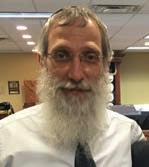
CONTINUED FROM PAGE 10
Wiemer’s novel “The Assignment” is about two students challenging their school over a classroom activity that requires some of them to argue in favor of the “Final Solution.” Wiemer illuminates historical facts about the Holocaust with contemporary ideas about what it means to be an ally to marginalized groups. The story is a timely response to real-life “assignments.”
As a Holocaust educator, the most common question children ask me is: “How come the Jews didn’t fight back?” This is a product of their exposure to the myth that Jews went to their deaths “like lambs,” and it shows the inadequacy of contemporary Holocaust education. It also helps explain why many young people are prone to taking the Holocaust lightly. Such ignorance can breed indifference, and as the historian Ian Kershaw said, it was indifference that paved the road to Auschwitz. Hitler wrote in “Mein Kampf” that the Nazis would never recruit members from “the unthinking herd” of the public. He knew that widespread indifference would help his pursuit of antisemitism more than widespread fanaticism.
We learned many lessons from the war, but the threat of indifference enabling hatred to run riot is as pressing today as it was in Germany in the 1930s and 1940s. The Holocaust is the most radical demonstration of what can happen when the suffering of others goes unchecked. This is why improving the way we teach it must be a priority for schools everywhere. JN
The Arizona Diamondbacks signed the first known Orthodox Jewish player to be drafted by Major League Baseball.
The D-backs selected Jacob Steinmetz in the third round of the MLB draft on Monday, July 12.
“It just makes me feel that the amount of work that I put in and sacrifices I made, and even just staying committed to my religion and faith — it all really worked out,” Steinmetz told Jewish News.
Local Jewish baseball fans are stoked about having Steinmetz as part of the D-backs.
“It’s great for so many young boys and girls in the frum community to see someone like them in the major league,” said local baseball fan Shmiel Gruys. “It’s much more than just representation — I think it’ll give a boost for frum kids playing sports, especially baseball.” Gruys also teaches general studies at Menachem Mendel Academy in Scottsdale.
Congregation Kehillah Rabbi Bonnie Sharfman said she wishes Steinmetz great success, and noted that the team “desperately” needs some pitching.
Steinmetz, 17, is a 6-foot-5-inch, 220pound pitcher. His fastball has reportedly

reached 97 miles per hour.
“It’s not easy to be an observant Jewish athlete,” Sharfman said, adding she hopes Steinmetz will “continue to be a role model for our children and teens — someone who pursues their passions without compromising their identity.”
Steinmetz said he keeps kosher and observes Shabbat, but he also pitches on Shabbat. To avoid using transportation on Shabbat, he has booked hotels close enough to games that he can walk to them.
Speaking to reporters July 12, Deric Ladnier, Diamondbacks scouting director, said he doesn’t know all of the details of what Steinmetz’s Shabbat observance entails. His understanding is that “he has beliefs on Saturdays through sunset that he’s not allowed to travel or use any type of modern equipment. You know, he eats kosher, those type things.” But he said the team is more than willing to make adjustments so that he’s not scheduled to travel on Shabbat.
“It’s going to take some effort on our part to make sure we put him in the best position,” Ladnier said. “We respect that. We don’t think that anybody should be penalized because of that. Obviously, we took him because of his ability and we just wanted to make sure that we respect everything that he does.”
Scottsdale resident and baseball fan Andrew Gibbs said he appreciates Steinmetz proudly expressing his Jewish identity.
“As many Jews are feeling conflicted about outwardly expressing their Jewish identity, it’s inspiring to see others embracing it,” Gibbs said. “This is also just another powerful example of how, through hard work, one can overcome barriers — both perceived and real.”
Steinmetz said he hopes his draft pick will inspire the Jewish community at a time when many are feeling uncomfortable due to a rise in antisemitic incidents.
“My message is just that they really can do anything that any other person can do. We’re really all the same while also staying committed to our faith and religion. And, hopefully, younger kids that want to play baseball at the high level will look to me and see that it’s possible.”
Tempe resident Rafi Turner, a selfdescribed baseball fan since birth, said Steinmetz joining the D-backs is an “incredible opportunity for Phoenix and baseball.”
George Weisz, an active member of Arizona’s Jewish community supporting Jewish National Fund-USA Project Baseball, said the local Jewish community would be glad to welcome Steinmetz.
“Jacob follows a long heritage of Jews involved in the spirit and industry of baseball, both on and off the field,” Weisz said. “Plus, he has a screaming fast ball, which many of us will be calling his hard
matzo ball. I already have a D-backs kippah. Better get a kosher food stand ready in Chase Field.”
Weisz has been co-owner of three minor league baseball teams and said Diamondbacks CEO Derrick Hall and the team “deserve tremendous credit for respecting and appreciating” Steinmetz’s religious and cultural background “as the Diamondbacks leadership and organization does with every member of its team.”
Steinmetz was drafted 77th overall, but MLB.com ranked him the 121st best major league prospect, so he was chosen far earlier than expected.

Steinmetz spent the spring at ELEV8 Baseball Academy in Florida, honing his mound skills while attending The Hebrew Academy of the Five Towns and Rockaway in Long Island via Zoom.
Steinmetz comes from an athletic family — his father, Elliot, played basketball at Yeshiva University and is now the New York school’s basketball coach.
Steinmetz signed with the team July 20.
He said he’s never been to Arizona, but he’s heard it’s hot.
“I know it’s a lot of desert,” he quipped.
Steinmetz is now part of the minor league system and hopes to make it onto the Diamondback roster.
“AA, AAA, major, I’ll be here to support. Let’s all welcome Jacob into this fabulous community,” Turner said.

The MLB draft became doubly historic Tuesday, July 13, when the Washington Nationals selected Elie Kligman, another Orthodox Jewish player.
According to MLB.com, Kligman, 18, has moved towards becoming a catcher but has also played shortstop and thrown the ball 90 miles an hour as a pitcher.
Unlike Steinmetz, the Las Vegas native does not play on Shabbat.
“That day of Shabbas is for God. I’m not going to change that,” he told The New York Times in March.
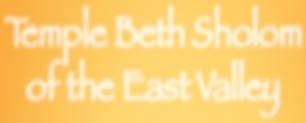
The Times reported that Kligman’s
recent switch to playing catcher could be in service of his professional goals. Even the best at the sport’s most physically demanding position are often given at least one day a week off — opening up the possibility that Kligman could line up his days off to be during Shabbat.
Despite the excitement of being drafted, Kligman will likely look to play first at a Division I college program before a professional career, Kligman, said.
“Here’s a kid who won’t put God second,” Kligman told the Times. “But he believes that the two can coexist. He’s got six days of the week to do everything he can to be a baseball player, and if colleges and Major League Baseball aren’t inclined to make any changes, then we’ll take what we can get.”
Phoenix resident Yisroel Loeb said two Orthodox players making the MLB draft means a lot to him and his 14-year-old son, who is possibly the only Orthodox Jew playing club baseball in the Phoenix metro area.
“The conversation I had with him when he was little was, you have to make a choice. And if you want to choose this, that means you have to be that much better than everybody else,” Loeb said.
But this historic MLB draft shows that “being an Orthodox Jew in baseball, is definitely not a problem.” JN
MONDAY, AUG. 9
A Summer Evening of Comedy: 7 p.m. Hadassah Tikvah West Valley presents a fundraiser comedy night featuring Ira Summer, Ben Feldman, Liz Glazer and Samson Koletkar. Cost: $20. For more information and to register, visit events.hadassah.org/asummereveningofcomedy.
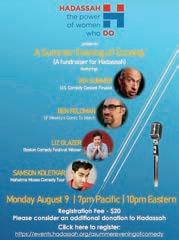
SUNDAY, AUG. 8
Open House: 11 a.m.-1 p.m. Temple Beth Sholom of the East Valley will host an open house. For more information, visit tbsev.org.
FRIDAY, AUG. 13
Wise Aging: 11:30 a.m. - 1 p.m. In this virtual Bureau of Jewish Education course, learn positive ways to navigate a meaningful transition to your next chapter on life’s journey. Wise Aging is designed specifically to meet the social, emotional and spiritual needs of Jewish seekers entering second adulthood. Explore the tools and resources to age wisely through the lens of Jewish wisdom. Cost: $10. For more information and to register, visit bjephoenix.org/ course-events/2021/08/13/wise-aging.
SUNDAY, AUG. 15
Or Tzion in Candyland 10 a.m.-noon. An open house celebration to bring community members together in-person at Congregation Or Tzion. Games, crafts, sweets. high holiday information, opportunities to meet Rabbi Andy Green and religious school teachers, building tours and more. To register, visit otaz.org/candy.
WEDNESDAY, AUG. 18
Arizona Broadway Theatre and Dinner: 5:30 p.m. Come see “The Spitfire Grill” at the Arizona Boradway Theatre and have dinner. The show tells the story of a young woman just released from prison who decides to start her life anew in a rural town in Wisconsin. Cost: $75 for MPJCC members, $85 for guests. For more information and to register, visit jewishphoenix.regfox.com/ summer-outings-with-the-j.
SUNDAY, AUG. 22
Jazz Con Alma featuring vocals by Todd Herzog: 3 p.m. The Arizona Jewish Historical Society Summer Music Series presents a live music performance by Jazz Con Alma “featuring vocals by Todd Herzog.” A mainstay in the Phoenix jazz and latin scenes, The performance will be in person and COVID-19 social distancing protocols will be observed. Cost: $20 for AZJHS members, and $25 for guests. For more information, and to register, visit azjhs.org/jazz-con-alma
Apples & Hunny: 4.pm. Join Congregation Or Tzion and a very special guest from the Hundred Acre Woods to help get into the spirit of the sweet new year ahead! Meet Or Tzion clergy, eat pizza and have some fun. Geared toward families with young children. To register, visit otaz.org/YF.
WEDNESDAY, AUG. 25
Happy Hour: 7 p.m. Temple Beth Sholom of the East Valley is hosting a Zoom happy hour. For more information, visit tbsev.org.
TUESDAY, AUG. 31
Vision Board for the New Year: 6-8 p.m. Join the Martin Pear Jewish Community Center for this in-person workshop. Create a vision board in preparation for the Jewish New Year 5782. Cost: $25 for members, $30 for guests. For more information and to register, visit apm. activecommunities.com/valleyofthesunjcc/ Activity_Search/1809.
THURSDAY, SEP. 2
Beth Ami Temple Open House: 6 p.m. Interested in learning more about us and possibly joining? Come to our open house, inside the Palo Cristi
Church at 37th St. and Lincoln in Paradise Valley. Questions? Contact Judy Lohr-Safcik at jklohrsafcik@gmail.com.
THURSDAYS AUG. 5-SEPT 2.
Mindfulness at the J: 9:30-10 a.m. The East Valley Jewish Community Center will start each Open Beit Midrash session with 30 minutes of spirituality and meditation. The program will be held on Zoom. Cost: Free. For more information and to register, visit evjcc.org/event/ mindfulness-at-the-j.
Open Beit Midrash at the J: 9:30-11 a.m. The East Valley Jewish Community Center invites all for a morning of learning on Zoom with two offered classes: “Grappling with the Meaning of Life” and “The Life and Philosophy of Rambam” Cost: $240 for both classes or $120 for an individual class. For more information and to register, visit evjcc.org/obm.
THURSDAYS
Storytime at Modern Milk: 9:30 a.m. Bring your babies, toddlers and preschoolers to our weekly all ages in-person storytime. We will integrate favorite children’s books and songs while giving parents new ideas for play. Modern Milk is located at 13802 N Scottsdale Rd STE 163. Cost: $5. For more information and to register, visit modernmilk.com/after-baby.
SUNDAYS
Bagels: 9-11 a.m. Join the Martin Pear Jewish Community Center for Bagels And Gabbing every last Sunday of the month in-person. Grab a bagel and a cup of coffee and enjoy some time with your friends and make new ones. You must register to attend. Bagels and coffee will be provided. Cost: Free for members, $5 for guests. For more information and to register, visit apm. activecommunities.com/valleyofthesunjcc/ Activity_Search/1787.
Sunday-Thursday, June 25 - Aug. 20
Kosher in Flagstaff: Chabad of Flagstaff has offering kosher meals to go (June 25-Aug. 20) and elegant buffet dinners (July 18-Aug. 20) under the direction of Executive Chef Shua Lurie, founder of L’Orchidee Traiteur. For more information, visit thekoshercanyon.com or call 928-255-5756.
MONDAY, AUG. 9
The Messianic Idea: 1-2 p.m .Rabbi Avi Orlow, vice president at the Foundation for Jewish Camp, will virtually lead a class on the Messianic idea. Cost: $18. For more information and to register, visit valleybeitmidrash.org/event/the-messianic-ideaa-conversation-with-rabbi-avi-orlow/.
TUESDAY, AUG. 10
MIM-Musical Instrument Museum Virtual Program: 11 a.m.-noon: Are you a June CarterJohnny Cash super fan? Do you think you know the “man in black?” Join the Musical Instrument Museum and Katie Palmer, curator of education, for a virtual country-themed MIM Quiz! To register, visit jfcsaz.org/events/. Contact CSE Director Jennifer Brauner at seniorcenter@jfcsaz. org or 602-343-0192 with questions.
WEDNESDAY, AUG. 11
Morning minyan: 8:30 a.m. The Jewish Community of Sedona and the Verde Valley is
offering a virtual morning minyan. Cost: Free. For more information and to obtain the Zoom link, visit jcsvv.org/contact.
THURSDAY, AUG. 12
Torah Study: 4 p.m. Jewish Community of Sedona and the Verde Valley Rabbi Alicia Magal will lead a virtual Torah study class. The portion of that week will be Shoftim, Deuteronomy 16.18-21:9, focusing on the system of justice to be established once the Children of Israel enter the Promised Land. Cost: Free. For more information and to obtain the Zoom link, visit jcsvv.org/ contact.
WEDNESDAY, AUG. 18
Torah vs Reason: 11 a.m.-noon. In this virtual presentation by Bar-Ilan University Professor Tamar Ross, learn the virtues and limitations of employing allegory as a method of reconciling religious truth claims of with science, as evidenced in Maimonides’ defense of creation ex nihilo in his Guide to the Perplexed. Cost: $18. For more information and to register, visitvalleybeitmidrash.org/upcoming-events.
MONDAY, AUG. 23
Anitsemitism on campus: 1-2 p.m. Rachel Underweiser conducted a research study through the Woodrow Wilson Fellowship at Johns Hopkins University called “The Perception of Antisemitism on College Campuses in the U.S. and the U.K,” which has become the largest study on antisemitism at universities to date. In her virtual presentation, she will cover the discussion of “But really, what is antisemitism? Is there antisemitism at my university? If so, what can I do about it?” Cost: $18. For more information and to register, visitvalleybeitmidrash.org/ upcoming-events.
SATURDAY, AUG. 28
Selichot: 7:30 p.m. Congregation Kehillah is hosting an in-person Selichot program. For more information, email info@congregationkehillah.org.
WEDNESDAY, SEPT. 1
Soulful parenting: Noon-1 p.m. -2 p.m. In this virtual presentation, author Dasee Berkowitz will combine insights from thousands of years of traditional Jewish wisdom and contemporary literature on spirituality with her own utterly relatable first-person storytelling, to help parents embrace every moment with their families. Cost: $18. For more information and to register, visitvalleybeitmidrash.org/upcoming-events.
Meditation: 4 p.m. The Jewish Community of Sedona and the Verde Valley is offering a virtual afrernoon meditation. Cost: Free. For more information and to obtain the Zoom link, visit jcsvv.org/contact.
MONDAYS
Partners in Torah: 7:30 p.m. Join a growing group of inspired learners with Project Inspire. Cost: Free. Tune in at: us04web.zoom. us/j/3940479736#success, password is 613. For more information, email Robin Meyerson at robin@projectinspireaz.com.
Ethics of Our Fathers: 7 p.m. Learn with Rabbi Zalman Levertov online. Tune in at: bit. ly/2Y0wdgv. Cost: Free. For more information, visit chabadaz.com.
Quotable Quotes by our Sages: 7 p.m. Learn with Rabbi Shlomy Levertov online. Tune in at: JewishParadiseValley.com/class. Cost: Free. For more information, visit chabadaz.com. Learning to Trust in God: 7:30 p.m. Learn with Rabbi Yossi Friedman online. Tune in at: ChabadAZ.com/ LiveClass. Cost: Free. For more information, visit chabadaz.com.
Torah & Tea: 7:30 p.m. Learn with Rabbi Yossie Shemtov online. Cost: Free. For more information, visit Facebook.com/ChabadTucson.
MONDAYS, AUG 2.-AUG. 30
Intermediate Hebrew: 4:30-6 p.m. In this virtual Bureau of Jewish Education adult education course, Sophie Platt will teach
intermediate Hebrew. Cost: $50. For more information and to register, visit bjephoenix.org/ course-events/2021/08/02/intermediate-hebrew.
TUESDAYS
Keep Calm and Play Mahjong: 6:30-8:30 p.m. Play mahjong from home with myjongg.net. Cost: Free. To join a table, email Nicole at nicoleg@vosjcc.org.
Maintaining an Upbeat Attitude: 7 p.m. A class exclusively for people in their 20s and 30s, learn how Jewish Mysticism can help with your attitude with Rabbi Shlomy Levertov online. Cost: Free. Tune in at: JewishParadiseValley.com/YJPclass. For more information, visit chabadaz.com. Let’s Knit: 1:30-3:30 p.m. Share the pleasure of knitting, crocheting, etc. and help others with a project or pattern. Can’t knit? We can teach you! Every level welcome. We will be sitting outside at the Ina Levine Jewish Community Campus and social distancing. Our last meeting before August will be Tuesday, May 11. Cost: Free . For more information, email Nicole Garber at nicoleg@mpjcc.org.
TUESDAYS, APRIL 6-JUNE 22
History, Customs and Laws: 10 a.m. An online 11-week class exploring Jewish history, customs and laws. No class May 18. Cost: $110. For more information and to register, visit evjcc.org/obm.
TUESDAYS, AUG 3.-AUG. 31
Advanced Hebrew: 3:15-4:45 p.m. In this virtual Bureau of Jewish Education adult education course, Sophie Platt will teach advanced Hebrew. Cost: $40. For more information and to register, visit bjephoenix.org/course-events/2021/08/03/ advanced-hebrew.
TUESDAYS, AUG 3.-AUG. 31
Advanced Intermediate Hebrew: 5-6:30 p.m. In this virtual Bureau of Jewish Education adult education course, Sophie Platt will teach advanced intermediate Hebrew, for those between intermediate and advanced Hebrew.. Cost: $50. For more information and to register, visit bjephoenix.org/course-events/2021/08/03/ advanced-intermediate-hebrew.
TUESDAYS, AUG 10.-AUG. 31
The Myths and Facts of Judaism: 10-11 a.m. Rabbi Laibel Blotner will explore the myths and mysteries of Judaism including misconceptions and urban legends. Cost: $40. For more information and to register, visit bjephoenix.org/course-events/2021/08/10/ the-myths-and-facts-of-judaism.
TUESDAYS, AUG 10.-AUG. 17
Preparing Ourselves for the Jewish New Year: 6:30 - 7:30 p.m. Rabbi Aviva Funke will help you navigate this time of self-reflection, growth and discovery to help you begin shaping the Jewish year 5782. This is a virtual course by the Bureau of Jewish Education. Cost: $20. For more information and to register, visit bjephoenix.org/course-events/2021/08/10/ preparing-ourselves-for-the-jewish-new-year.
WEDNESDAYS
Happiness Hour: 11:30 a.m. An online class taught by Rabbi Pinchas Allouche that delves into texts and references culled from our traditions to address a relevant topic and draw uplifting life lessons from it. For more information or to join, visit cbtvirtualworld.com.
The Thirteen Petalled Rose: 1 p.m. An online Kabbalah class that studies “The Thirteen Petalled Rose” by Rabbi Adin Even-Israel Steinsaltz, focusing on the many foundational and transfor- mational concepts of Kaballah and Jewish Mysticism and applying them to everyday life. For more information or to join, visit cbtvirtualworld.com.
JACS: 7:30-8:30 p.m. Virtual support group for Jewish alcoholics, addicts and their friends and family on the first and third Wednesdays of the month. Cost: Free. For more information, email jacsarizona@gmail.com or call 602-692-1004. JN

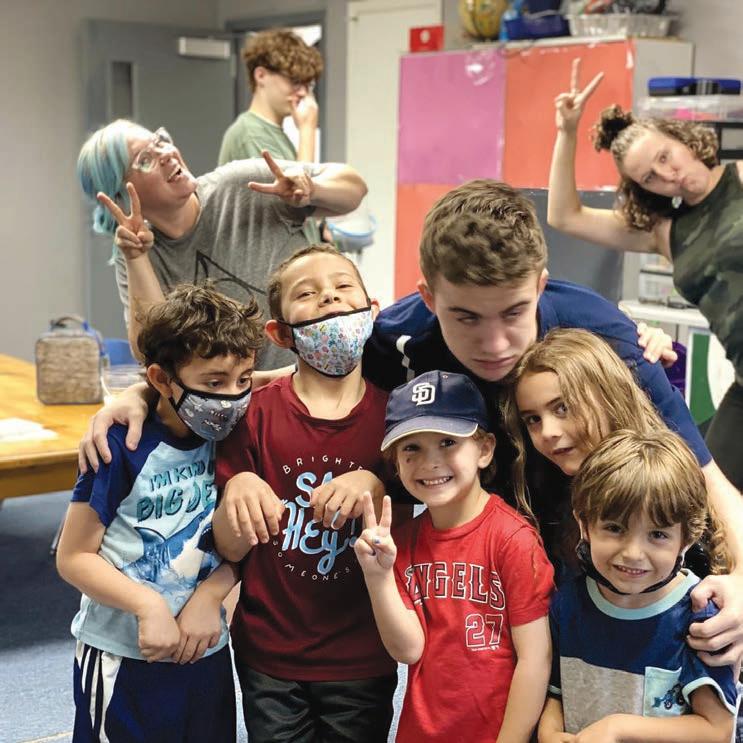
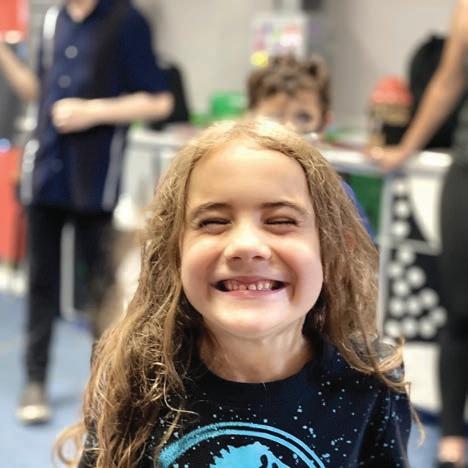
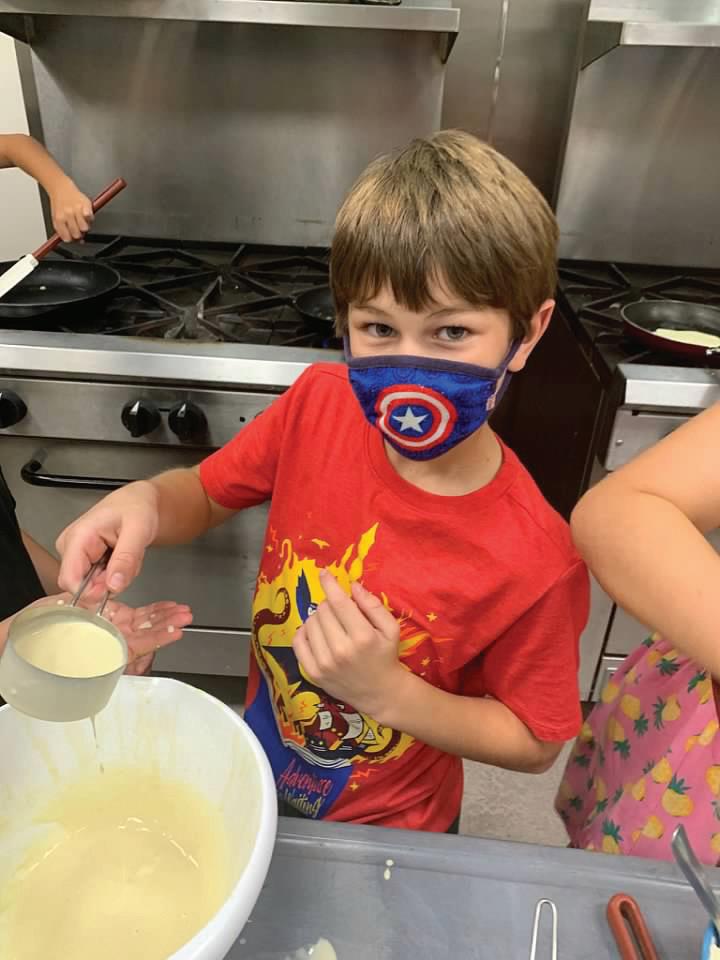


Robert Cecil Beliak, 70, died June 30, 2021. He was born in Mason City, Iowa and lived in Phoenix.
He is survived by his ex-wife, Marci Beliak; his daughters, Sari Beliak (Eric Reynolds) and Risa (Matt) Schwabinger; his son, Avi (Elizabeth) Beliak; four grandchildren; and his brother, Haim (Lynn) Beliak. Services were held at Mt. Sinai Cemetery. Arrangements by Sinai Mortuary.
OBITUARY
MARILYN EVINS

Marilyn Evins, 94, died July 25, 2021. She was born in Chicago and lived in Phoenix.
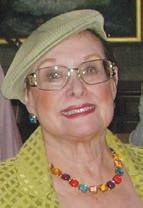
She is survived by her daughters, Robin Brin, Jody Goldman and Jennifer Court; her son, Scott Evins; six grandchildren; and nine great-grandchildren. Services were held at Green Acres Mortuary with a celebration of life at Beatitudes Campus.
Arrangements by Green Acres Mortuary. JN
SHARE YOUR ENGAGEMENT, WEDDING, BIRTH, BAR/BAT-MITZVAH ANNOUNCEMENT AND ANY OTHER SIMCHA ON BOTH JEWISHAZ.COM AND THE WEEKLY JEWISH NEWS ... FOR FREE.
JEWISHAZ.COM

The 33rd annual Jewish News Community Directory is a full-color magazine. This essential guide to community, businesses and professional resources will connect you to 15,000 readers, in print and online all year long.
Publishing October 15, 2021
Space Reservation – September 2, 2021
Advertiser Bonuses
• FREE 25-word listing
• Resource/telephone index


• Listing on Jewish News’ website, jewishaz.com, with links

RESERVE YOUR AD TODAY! Contact Jodi Lipson at jlipson@jewishaz.com to schedule your advertising.
Rhea B. Bender, 100, died peacefully on July 16, 2021.


It is difficult to describe this feisty, courageous woman who lived for her family, was a voracious reader and imbued her children with a love of learning and empathy for others. She had an infectious laugh, a beautiful singing voice (she was invited to sing on the radio, but had to work to support her single mother and younger sister) and was a frustrated architect at heart. And how she loved to watch the Arizona Diamondbacks and the Chicago Cubs! She enjoyed an amazing, long life, due in no small part to the loving care provided during the last 16 years in the home of her daughter, Susan and son-in-law, Dave. Rhea was born in Akron, Ohio and raised in Cleveland. In 1945, she moved with her family to Phoenix, where she started a job in the secretarial pool of the Valley National Bank. In 1946, she met the love of her life, David S. Bender, at a dance. They married in 1947, and over the years, had three daughters, Laura, Margery and Susan. Rhea took care of the kids while Dave was on the road for work, including stints in Duncan, Safford, Tucson and Scottsdale.
Rhea is preceded in death by her husband, David; her mother, Sally; and her younger sister, Shirley. She is survived by three daughters, one son-in-law, three grandsons, two great-grandsons, a niece and nephew, one great-niece and three great-nephews. She will be deeply missed by all.
A small graveside service was held at Paradise Memorial Gardens in Scottsdale on Tuesday, July 20th. In memory of Rhea, please consider a donation to the American Diabetes Association or Barrow Neurological Institute. Arrangements by Sinai Mortuary.

With heavy hearts the Cohen family regrets to announce the passing of Rochelle Cohen. Rochelle (Shelly) passed away peacefully in her home in Paradise Valley, Arizona, on July 14, 2021, with her husband Murray and daughter Cindy (Goldberg) by her side. She was born in Arcadia, California to Marion (Greenbaum) Kaplan and Morris J. Kaplan. Shelly graduated from Arcadia High School and began college at USC in Los Angeles. She played the string bass in the USC concert band and orchestra.
She was introduced to Murray on a blind date and subsequently moved to Philadelphia in 1960 where she completed her bachelor’s degree in education at Temple University in Philadelphia.
After only a brief engagement, they were married in December of 1960 and settled 2 years later in Phoenix. It was there that they started their future together and raised their family. They were married for 60 years.
Shelly will be remembered as a wonderful mother, loving and devoted wife, loyal friend and classy and elegant hostess. An avid reader, Shelly supported several many charitable organizations including Mu Phi Epsilon, a music sorority, Hadassah and Brandeis. She was an unapologetic supporter of the “political scene” and enjoyed lunches with friends.
She especially loved traveling worldwide with her husband, as well as with family on vacations with her grandchildren. Shelly was a great conversationalist and often was the source of information for everyone. She loved to entertain, and hosted many holiday celebrations for family and friends.
We are especially grateful to her amazing caregivers for preserving her time at home with grace and comfort during the last few months.
Shelly is survived by her husband, Murray, daughter Cindy, and son-in-law Steve Goldberg, grandchildren Joshua and Rachel, (Jared Gilman), a son and sister.
To honor Rochelle, in lieu of flowers, please send donations to https://usa.jnf.org/jnftree-planting-center/, to plant a tree that will serve as a living tribute to her memory.
August
2021 @ 1:00 pm - 2:00 pm

Rabbi Sharon Brous, the Founding Rabbi of IKAR, will give a one hour class exploring various dimensions of Judaism & Social Justice. Join our annual Hammerman Family Lecture Series to honor our friends Stan & Cheryl as we engage in this morally urgent call to sacred responsibility.
